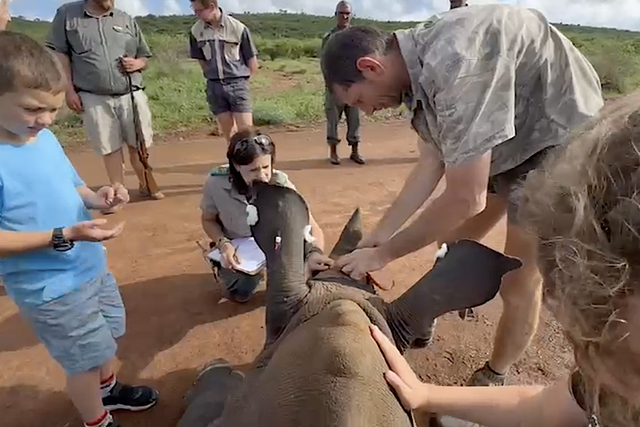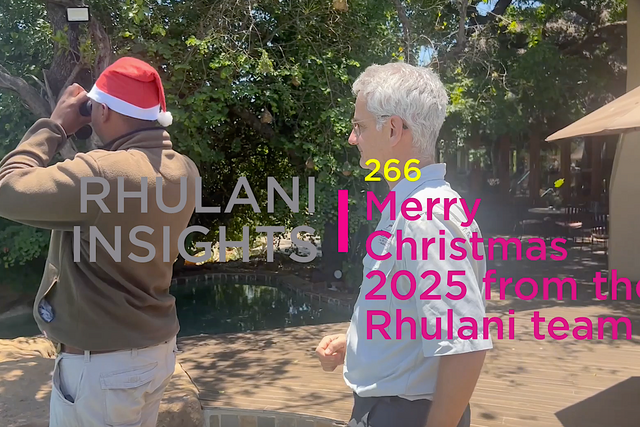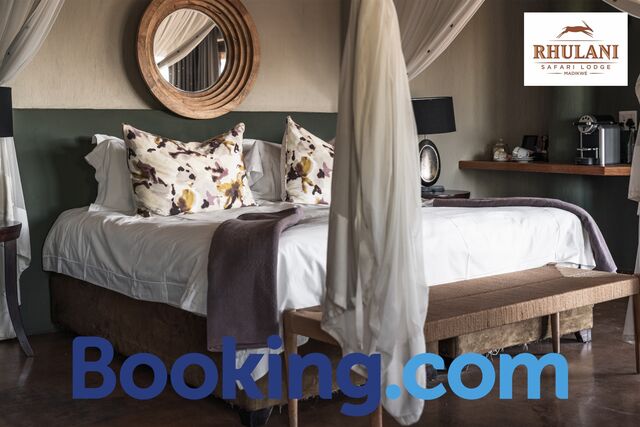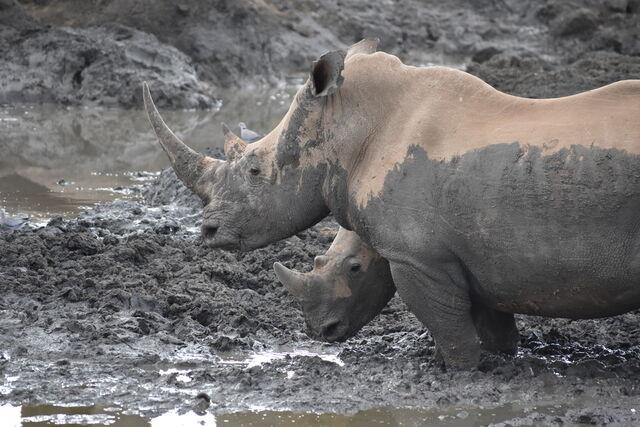Read how Rhulani Safari Lodge masters the daily challenge in times of the coronavirus and how we prepare ourselves for the future. Thoughts from Rhulani's owner Rolf who lives in Switzerland.
Day 150: Sunday breakfast
Today is Sunday. I'm preparing a particularly delicious breakfast for my family. Still inspired by our recent vacation in Crete, there are poached eggs and an "avocado toast" as my special. A rich breakfast was always a highlight during our holidays, as it is also the case at Rhulani when you return from an extended morning safari. But I also remember: breakfast is probably the biggest challenge for a hotel in times of COVID-19. We need a good plan.
The "breakfast buffet" which is standard in hotels will no longer exist for safety reasons. So far so good. But have you ever thought about how to order breakfast "a la carte" in a hotel?
In Crete this was quite a challenge for us at first. How do you order the exact amount of butter and jam, the type of bread, or how do you name the cheese you want without simply ordering a large variety of cheese on a plate and then giving almost everything back?
I also didn't find it ideal that you first have to sit down and make an order, then wait. In the morning, you would like to go straight to the buffet and get something. You're hungry!
Somehow, over time in Crete we knew our standard order list, but I still got the feeling: Breakfast, that's a real challenge for everyone. We need a good solution here!
Riaan, my manager at Rhulani, had a good idea when I discussed the matter with the team. We set up individual buffets for all of our guest groups, where a little bit of everything is available. We have enough space, and hot breakfast can be ordered individually anyway. I like this idea!
My Sunday breakfast is now prepared. A touch of holiday feeling comes up, almost like in Crete. And the avocado toast is a real hit!

Day 149: Isolation Room
In the midst of our serious preparations for the reopening of Rhulani, I come across the request for a so-called "isolation room". In accordance with the regulatory requirements, this must be available in every hotel in times of COVID-19. I don't have to think too long about where the ideal "isolation room" could be. But I still give a few thoughts about it.
An isolation room? Well, the whole point of this is very simple. If a guest falls ill with COVID-19 during the stay in Rhulani, he or she must be separated from contact with other people immediately and put in a so-called "isolation room".
Since we intend to ideally sell all of our guest chalets after reopening, we cannot always keep one free in case of emergency. On the other hand, we are a five-star lodge, so we cannot afford to lock a guest in a dark pantry.
The ideal solution is our so-called "Pilot Room", which is quite isolated between the area for the guests and the area for the staff. A neatly furnished, wooden house, well equipped, with private shower, toilet and air conditioning. I often use this room myself when I visit Rhulani. It has its own charm. I like it!
But of course I don't want to advertise here. On the contrary, I very much hope that the isolation room will never be used!
But how long do our guests stay with us? Two nights? Three nights? Maybe four? So, what is the probability that a guest arriving healthy, without fever or symptoms, will fall ill within the short period of time and receive a positive COVID-19 result, and will be isolated? Rather unlikely. And yet: we are prepared.
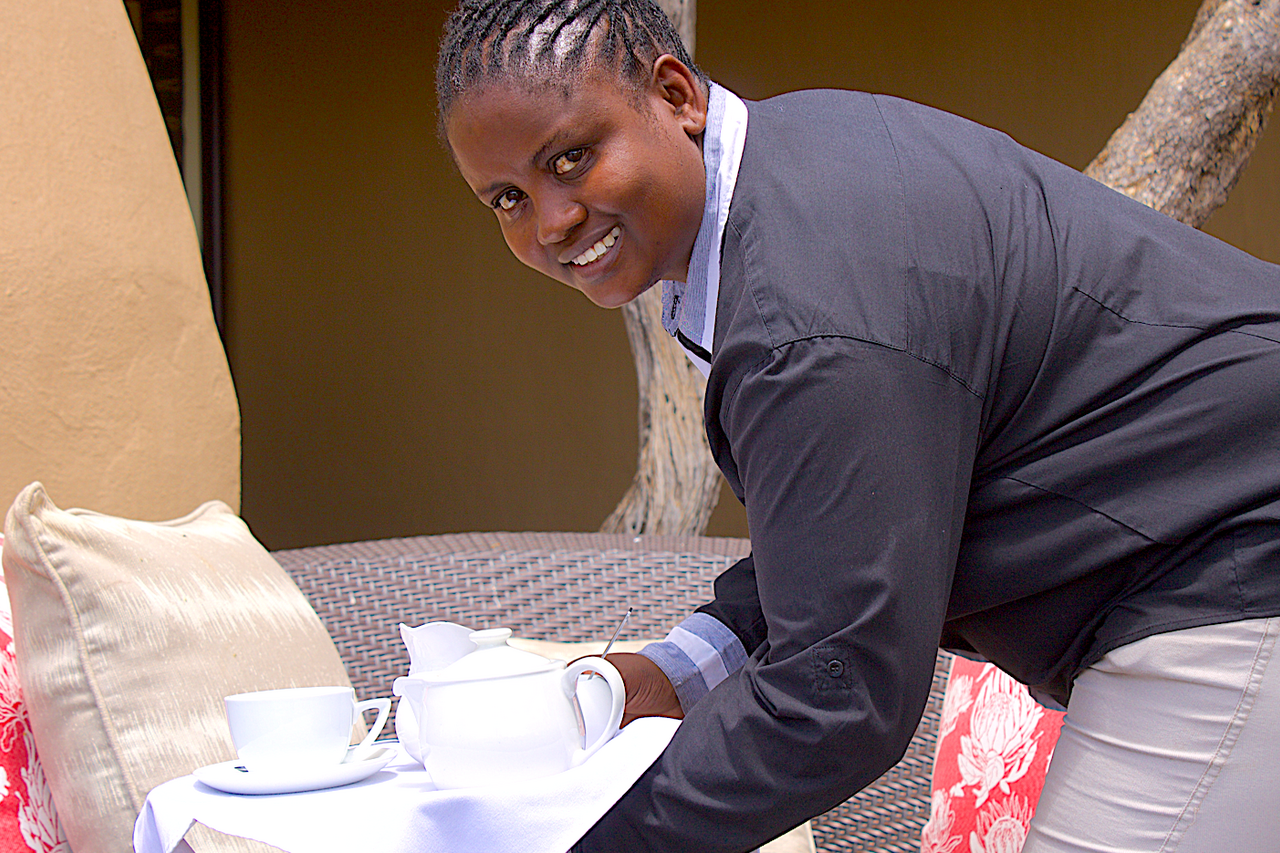
Day 148: Bird day
Because my little son had an excellent first week in kindergarten, I am giving him a present today. He prefers to have these small toy animals, which look the same as real animals. Really nice toys! However, my son already has almost all possible animals in his collection, so it is difficult to find one that is still missing. But finally I find one he doesn't have. And it is an animal that is typical for South Africa: the ostrich.
As expected, my son is very happy about the gift. He plays with it the whole day. As the ostrich looks so beautiful, with the black and white feathers, he thinks that must be a female, and since this animal comes with an ostrich egg.
Coincidentally, my rangers at Rhulani broadcast their weekly live stream on the subject of "ostrich" yesterday. Thursday is Bird Day. The heaviest, and not flying, bird on earth.
By the way, you should definitely watch this live stream, especially to see how our funny ranger Alasdair shows the courtship behavior of the male ostrich. I had to lauch so much! But this is another story.
I explain to my son that his ostrich is actually a male. The females have brown feathers and look less noticeable. I tell him that as soon as possible he will see a real ostrich in Madikwe. He is still very young and has not yet been in South Africa. He will love it!
And I'm not lying to him. There are actually ostriches in Madikwe! Few, but there are. They survive there without any problems despite the many predators in the reserve.
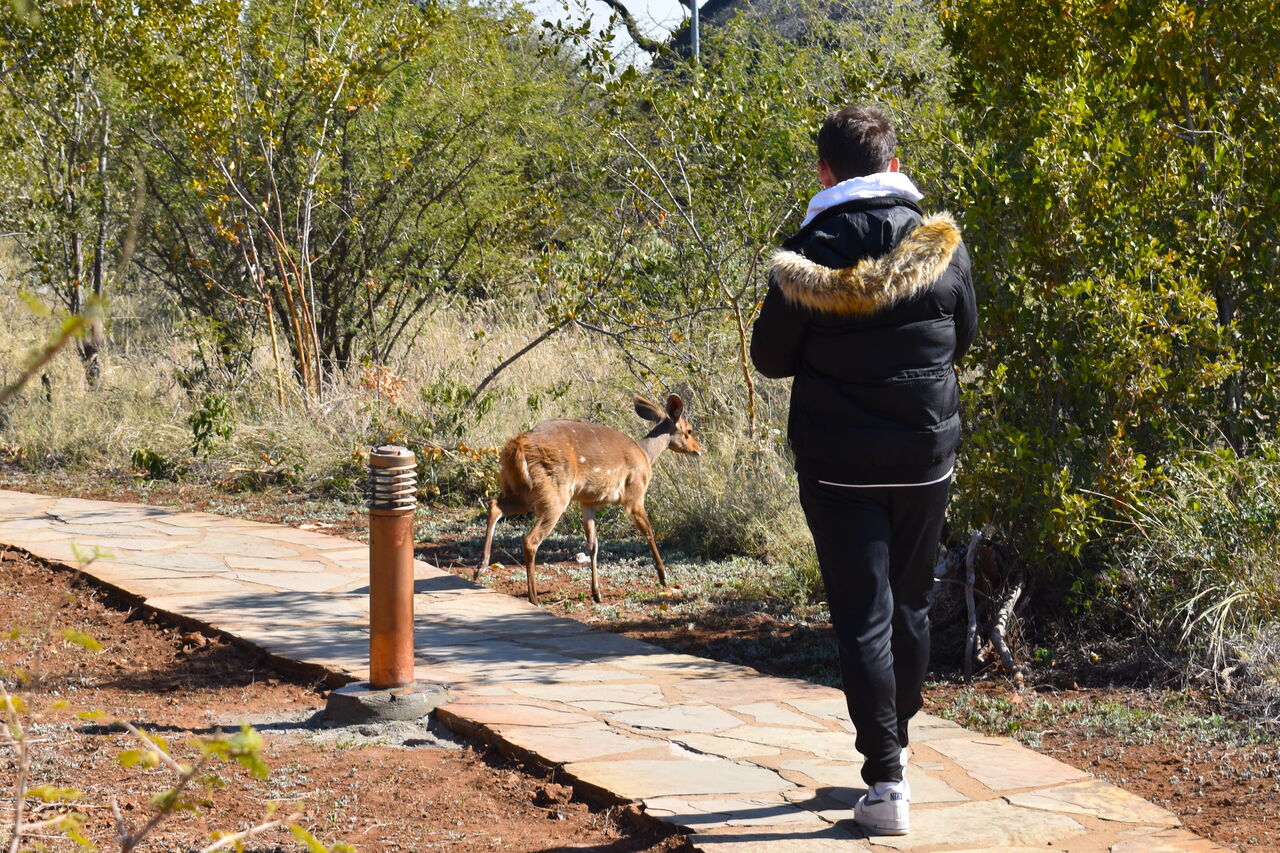
Day 147: The start of a boom?
Before I go to bed, I watch the news on Swiss TV and see an extremely interesting report about how the hotel industry is doing in the Swiss mountain regions in times of COVID-19. Similar to South Africa, where there is a general entry ban, Swiss tourism is living almost exclusively from local customers. Do they bring enough business? The results astonish me very much!
A Swiss travel agent recently mentioned to me that it doesn't matter which crisis we are having. Tourism is always affected. The TV report also points out that all hotels had to go through difficult times during the period when there was a strict lockdown and there were therefore no guests.
Even now that local travel is possible in Switzerland, many hotels are struggling to survive, especially the city hotels. But as I said, the TV reporters visited the popular tourist regions in the Swiss mountains, in the middle of the summer season. This has some relevance to Rhulani. We are also a popular tourist destination. We are also located far away from a big city.
The result is interesting: Hotels that have always had a lot of local visitors are currently experiencing a real boom. 30 to 40 percent higher booking numbers compared to the previous year and even "the best summer ever" is the usual statement.
But even the other hotels, which mainly relied on international guests, did not complain. The big hole that arose was largely filled by local visitors, so that the drop in bookings is in the single-digit percentage range compared to the previous year.
This last insight gives me and my team at Rhulani optimism that we are right with our recent decision. We are trying more than ever to address the local audience with a great offer. The initial feedback on our opening campaign also gives us confidence.
The start of a boom?
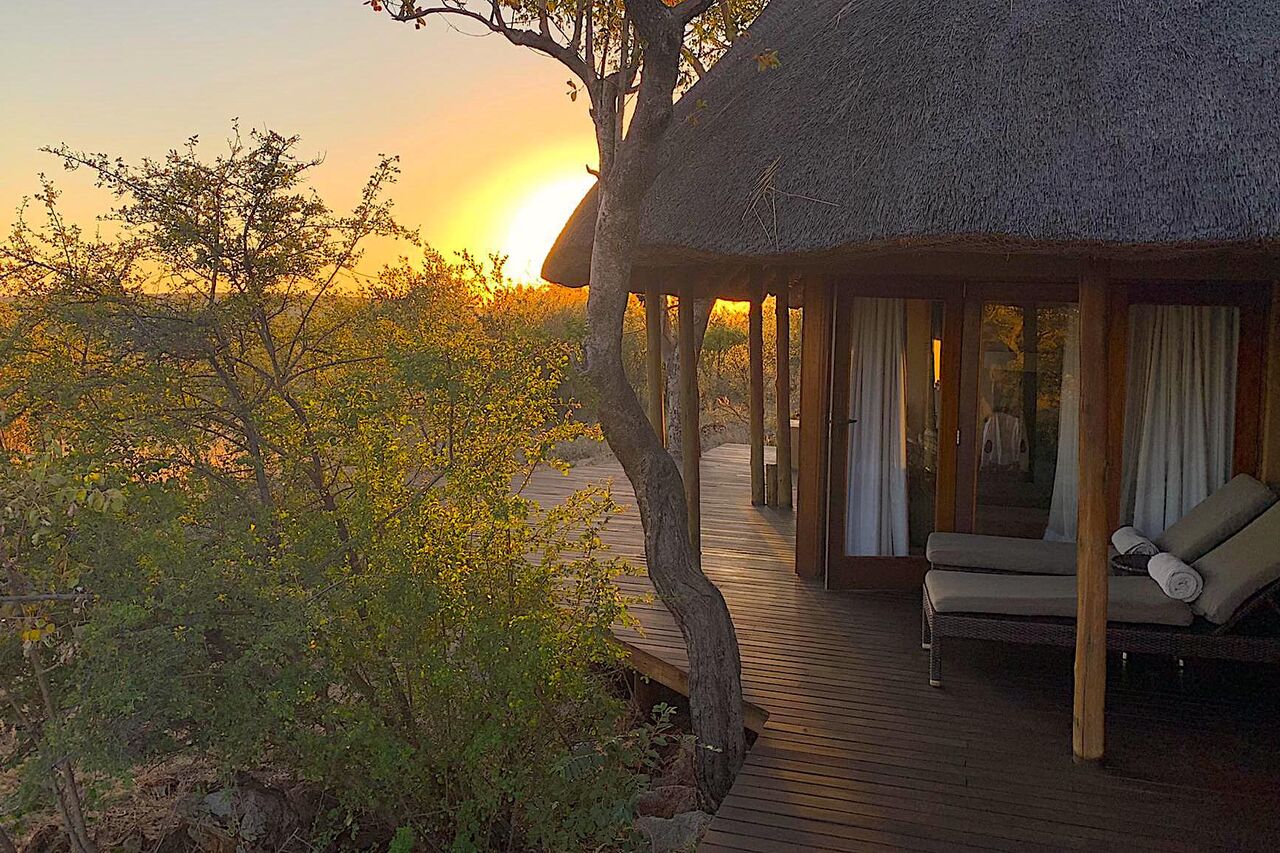
Day 146: Something about termites and ants
As you know, we report daily in our live transmission from the lodge. I live in Switzerland, and when I have time, I also connect to this live stream on Facebook or Instagram. Yesterday I snagged on a topic that at first glance seems anything but interesting: termites and ants. You should see that too.
I know that there are ants and termites and that they are not the same. Everyone knows the big mounds of earth that termites build, and the sophisticated, subterranean systems that these small animals build. It is also known to me that there is the "Ant Lion" that belongs to the "Little 5".
I remember when one day a rather large termite mound appeared in front of Rhulani’s lounge, which restricted the view of the waterhole. It lasted until a buffalo trampled on it.
On the livestream, Sean explains that termites are herbivores and ants are carnivores. Did you know that?
Once again I am fascinated by how much knowledge our rangers have about all the inhabitants of the African bush and how many exciting stories they have to tell. You never get tired of listening to them.
Coincidentally, today I am sorting out our photos from the holidays in Crete. My son always enjoyed watching the ants crawling around on the ground, next to our breakfast table. I see a photo where he is placing a piece of his croissant on the floor and watching the ants as they remove this rather large piece. There are quite a lot of ants, working together, in an unbelievable teamwork.
So I guess the ants, the carnivores, like to have a bit of bread every now and then. Am I right, Sean?
At the end of the transmission, a regular viewer asks whether we will continue such instructive live streams even after the lockdown has ended. This is actually a very good idea!
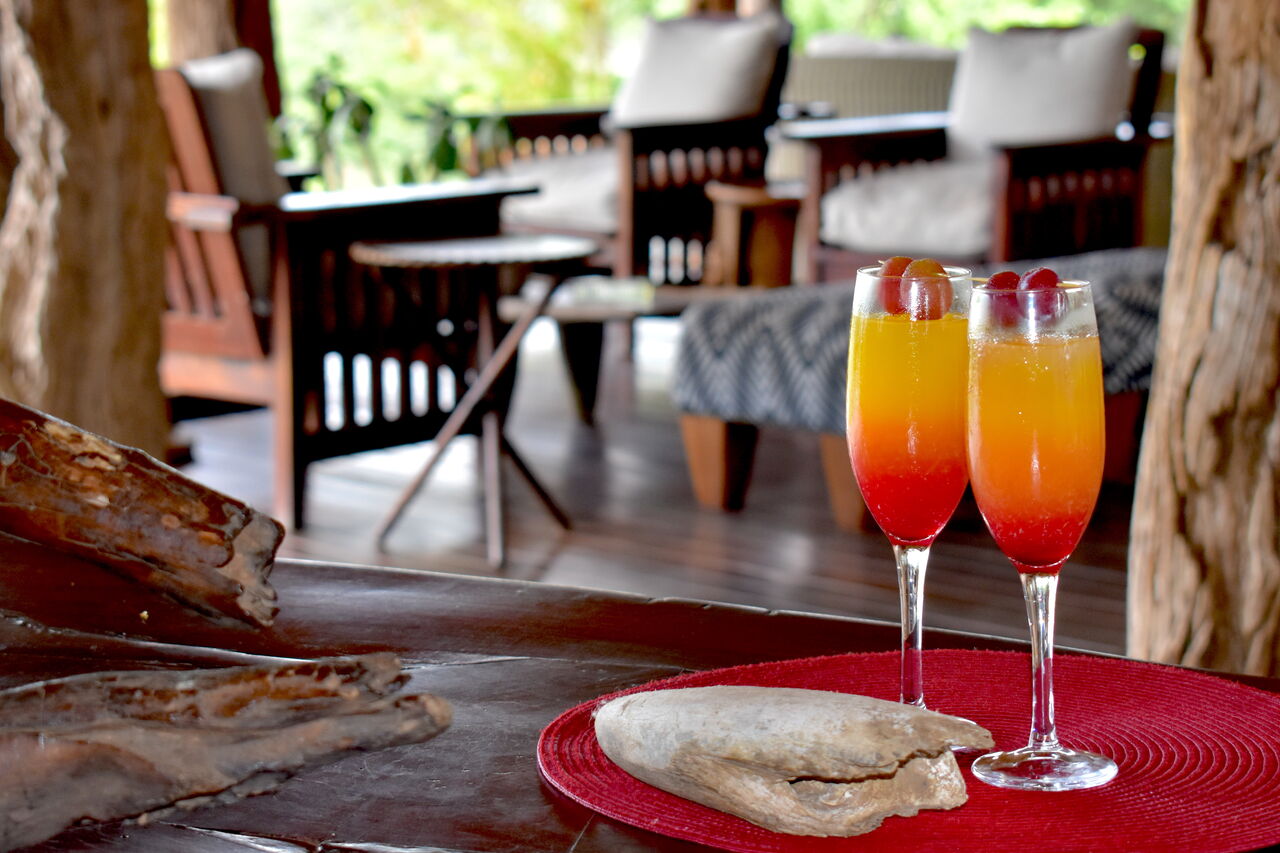
Day 145: Private Game Drives
At Rhulani it is naturally quite easy to create enough space and distance for our guests to other guests. We have the privilege of being an "open lodge" with large spaces and various logistical options for dining so that guests can spread out. Only concern could be the game drive vehicle, when you are out in the bush. There the guests sit close together. But here we have a fantastic solution.
I want to discuss my solution with our rangers today. In the office, however, Tom-Hendrik, our reservationist, answers me. He just got back from a short bumble drive. He radiates with joy. What happened?
He tells me: “Rolf, Today I saw a leopard for the first time in my life. Even better, I saw it before Riaan did. It was amazing!"
I don't need to tell you that the leopard is one of the most dangerous animals in the African bush and that you are very lucky when you get see one. Tom-Hendrik was lucky today. There are probably about 30 to 40 leopards living in the reserve. They can go in and out. Usually they are shy, and so only know about three which don't run away when we find them.
"By the way, it was a leopard that we had never seen before," says Tom-Hendrick proudly.
As he continues talking, I realize once again that in the many aspects of a safari lodge, the most important thing is the quality of the wildlife viewing, the daily safaris. Guests will remember fantastic sightings and wonderful drives in the bush for a lifetime.
I feel all the more confirmed that in times of coronavirus we don't just have to hope that we will "safely survive" the game drives. We will make this an absolute, unique highlight.
Here is the solution: At Rhulani the game drives are carried out completely privately. No unfamiliar other guests are on the vehicle. We transform the requirement for safety into a unique experience!
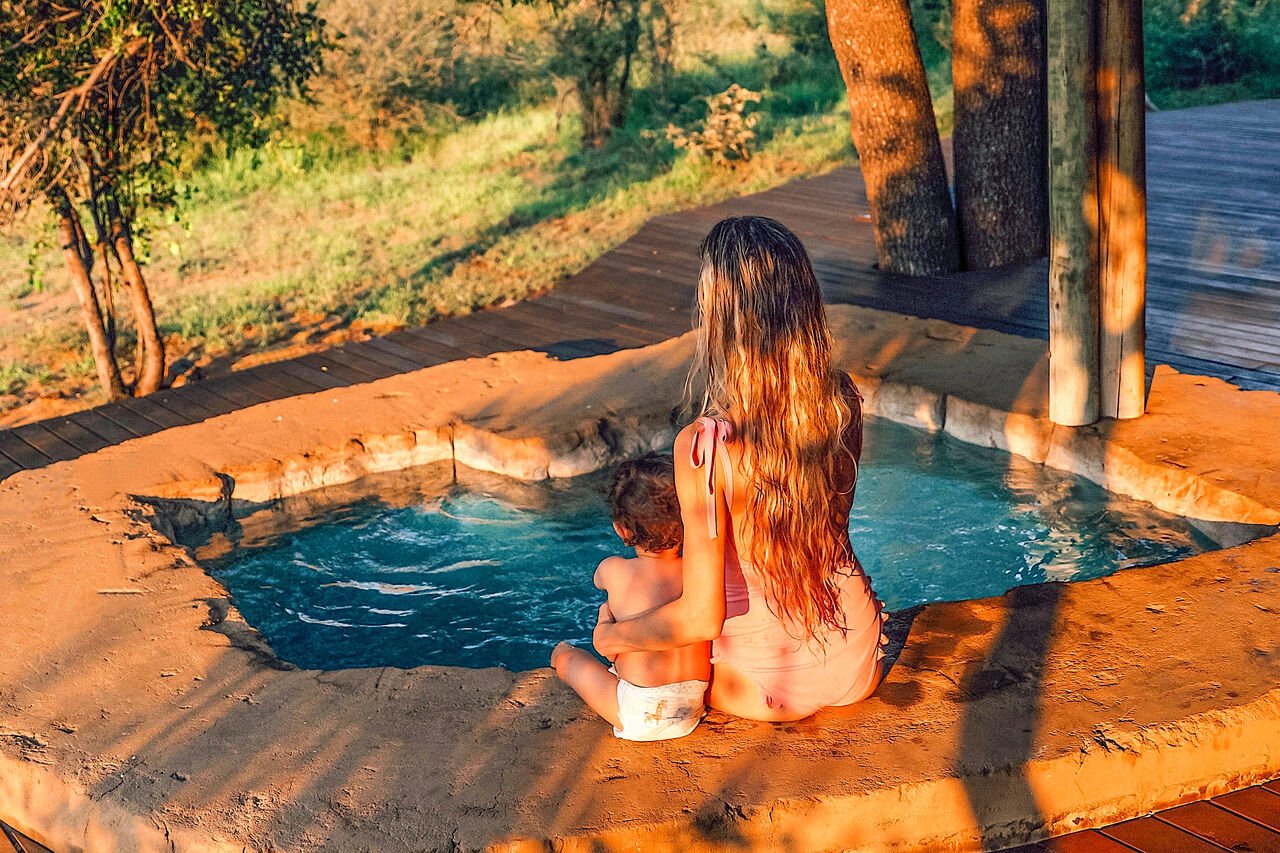
Day 144: The date is fixed: October 1st
For the long and complex way back, we were only missing one element: The fixing of a date, to which we are all committed to open Rhulani and accept new bookings. Now it is certain: October 1st will be our starting date.
When I called the assembled group of my five employees at the lodge today to discuss the issue of the opening date with you, I already had my own idea. But first I wanted to hear what my team thinks about it.
I expected all possible answers. From the desire to open immediately, to the reluctance to proceed too quickly, driven by the fear of the virus that is still present.
I reserved an hour for this call, but the question was answered within a minute. We all agreed that the preparation still needed a bit of time, but that we should try to open the lodge in times when only local tourism is to be expected.
So the date should be the 1st of October. "Rolf," says Carla, "we will have our school holidays in South Africa in October. We have good prospects then of local guests." And Riaan adds: "If we could maybe launch a special for October, it would enable a family to visit Rhulani who would otherwise not visit us."
A lot of questions and doubts are rattling around in my head. Will the COVID-19 situation stay under control for the weeks to come? How can we switch from an international to a local focus? Is the local market big enough? Will we have enough time to accurately implement all the protocols? Will our employees support our plan?
As expected, it will be a tough road. But today is certainly not a day to worry. We have a plan, a vision, and now a date. October 1. And this is exciting for all of us!
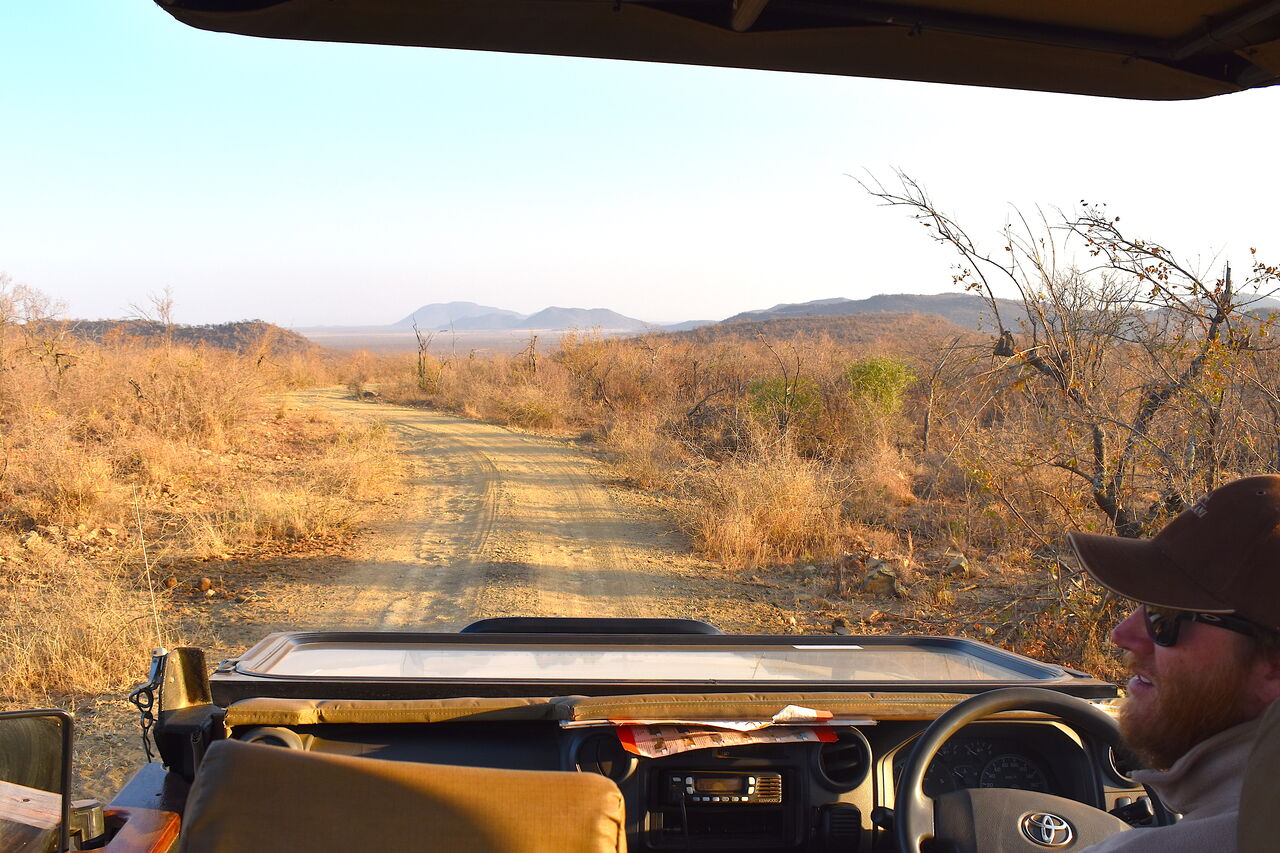
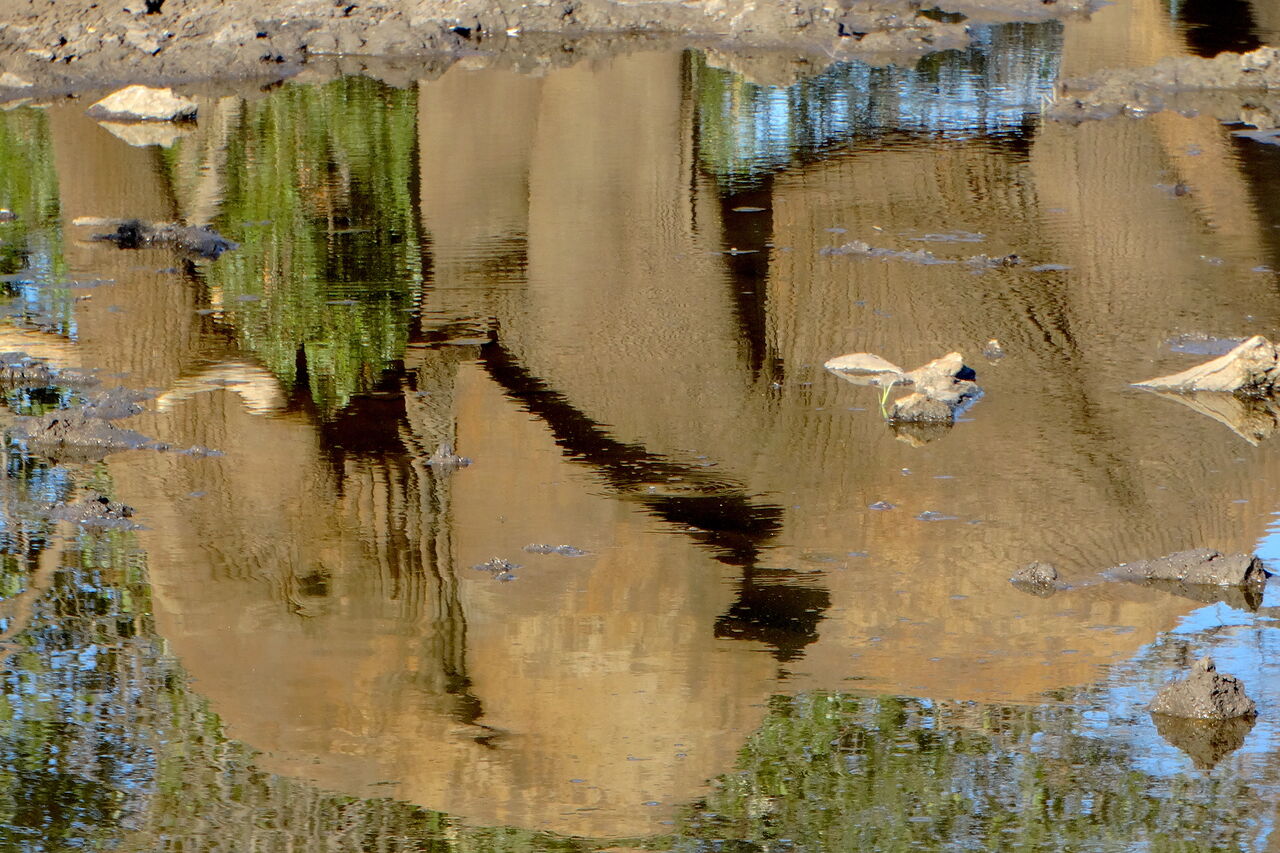
Day 143: A paradoxical situation
So I was right. The time in which hotels are allowed to open, but will still have no customers due to the local travel ban, will only be short. South Africa's President Cyril Ramaphosa has just lowered the COVID-19 alert level to 2. This means, among other things, he has enabled unrestricted travel within the country. The declining new infection rates made this step possible. I feel joy because at Rhulani we can now work on an opening strategy. For local tourism. On the other hand, however, the announcement makes me sad.
I find it incomprehensible that local travel is made possible overnight and not with a fixed date in the future. Do they think hotels will fill their rooms with guests tomorrow? This will take some time before hotels are ready with all protocols implemented and before South Africans start travelling.
It is probably an unwanted (or wanted?) coincidence that the state support program for short-time work, called TERS, will also end. On exactly the same date! But there is still no work. This creates the paradoxical situation that you have to lay off your workforce so they can apply for unemployment benefits individually. This at the same time you actually start to prepare for the re-opening and will reemploy all staff very soon again.
This strange effect could have been avoided if the TERS benefit had been extended by a few more weeks. That’s my opinion.
It is what it is. From tomorrow Monday I will concentrate on the positive things. Together with my team at the lodge, we will set the date on which we will "officially" open Rhulani. And we make a plan of all the steps to happen until then.
On the one side, it will be an opening under strict compliance with all safety concepts, and on the other hand, it will be an opening with amazing new things we have already thought about. An opening with a bang.
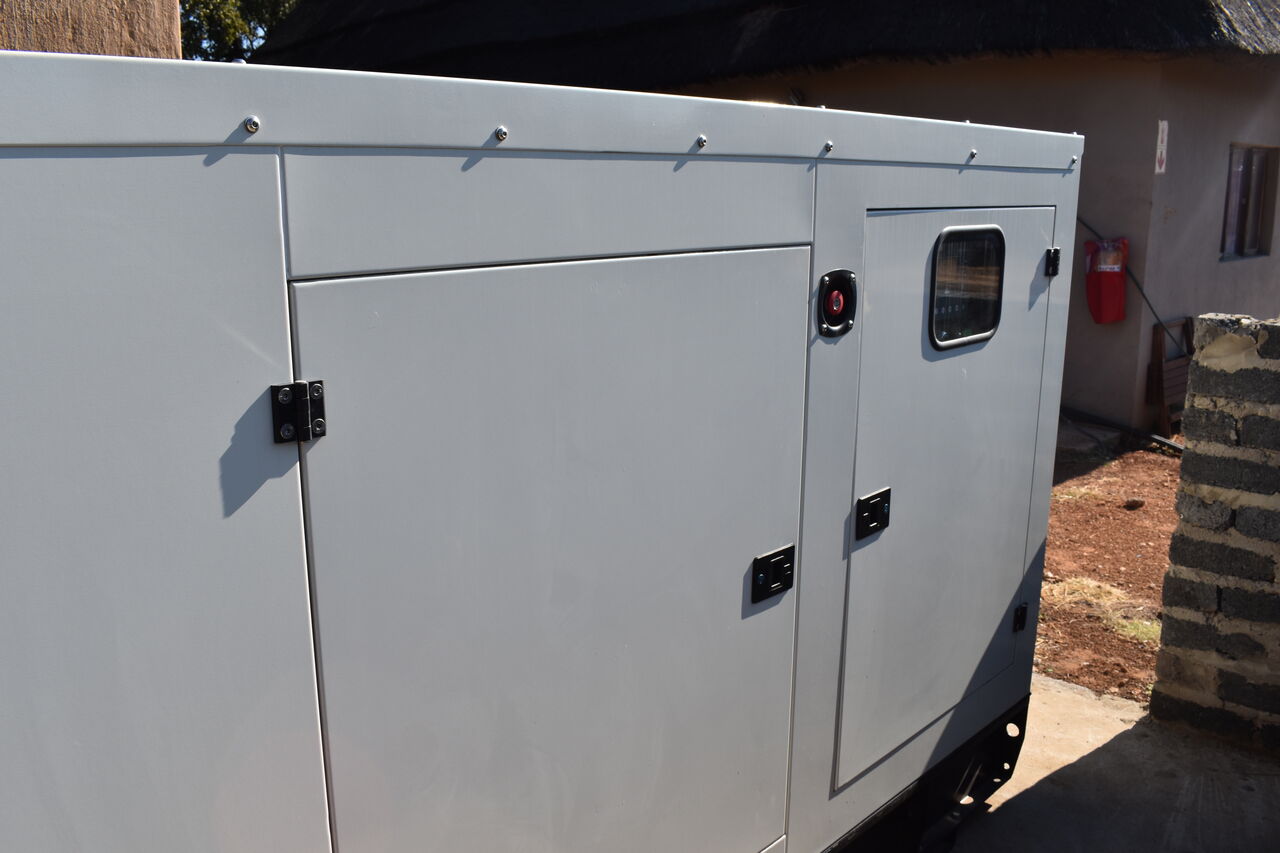
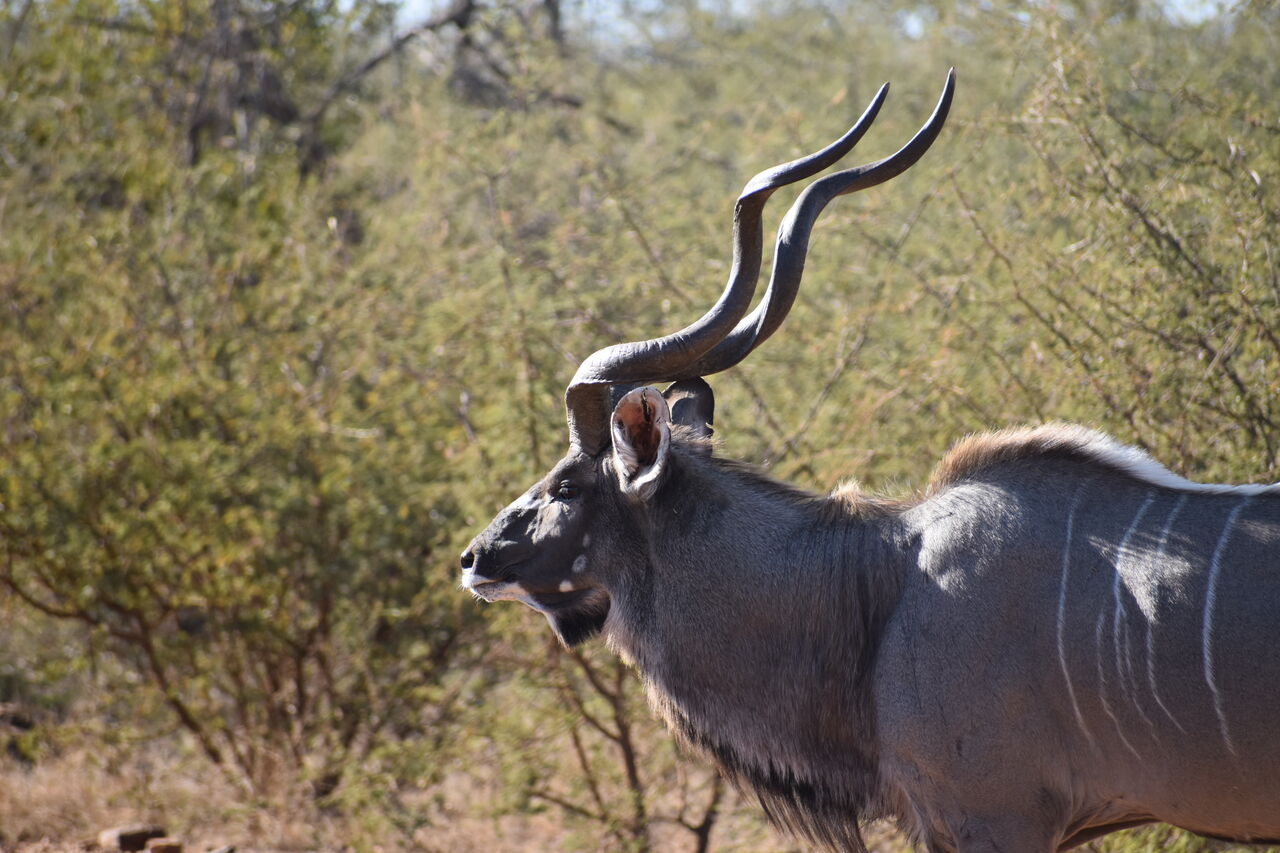
Day 142: Safety in uncertain times
Since all of my three managers - Carla, Riaan and Sean – are now at the lodge, the planning of the reopening has gained momentum. We now talk daily about our ideas, plans, thoughts and fears. We are all committed to aiming for the reopening based on a impeccable, professional and safe way. The road is long and uncertain, but I have a vision and I see it my job of the owner to create trust and confidence. But how do you do that in these uncertain times?
Trust is an important basis so that we can all walk this path together. I thought for a long time how I could create this trust. Should I create trust by saying we will open on a certain date? So that we can start preparing? Should I confirm that everyone then will have a secure job again? We will get enough bookings? The virus will soon be forgotten?
No. None of this will work. My staff is not stupid. They will not trust any empty phrases that make it easy to see that promises cannot be kept. There is no security for the future. We all have to live with that.
Instead, I point out the passion and commitment with which my wife and I look after Rhulani even during this time. With a vision that will survive many more pandemics.
I kept my job with an insurance company and do not live on Rhulani. Financially, we have paid all the bills, we have no debts, no loans to pay back, and we know the running fixed costs and we can pay them.
I assure that we will open Rhulani as soon as possible with the aim of bringing the same team back together that made Rhulani strong in the past. Along with the slowly increasing bookings, first locally, then internationally, we will be employing our staff again. Step by step.
There are many risks. We are prepared for it. But we face the risks, manage them, and most importantly: we talk every day with each other. Communication also creates trust.
I feel that the mood in Rhulani is good. The vision is shared by everyone.
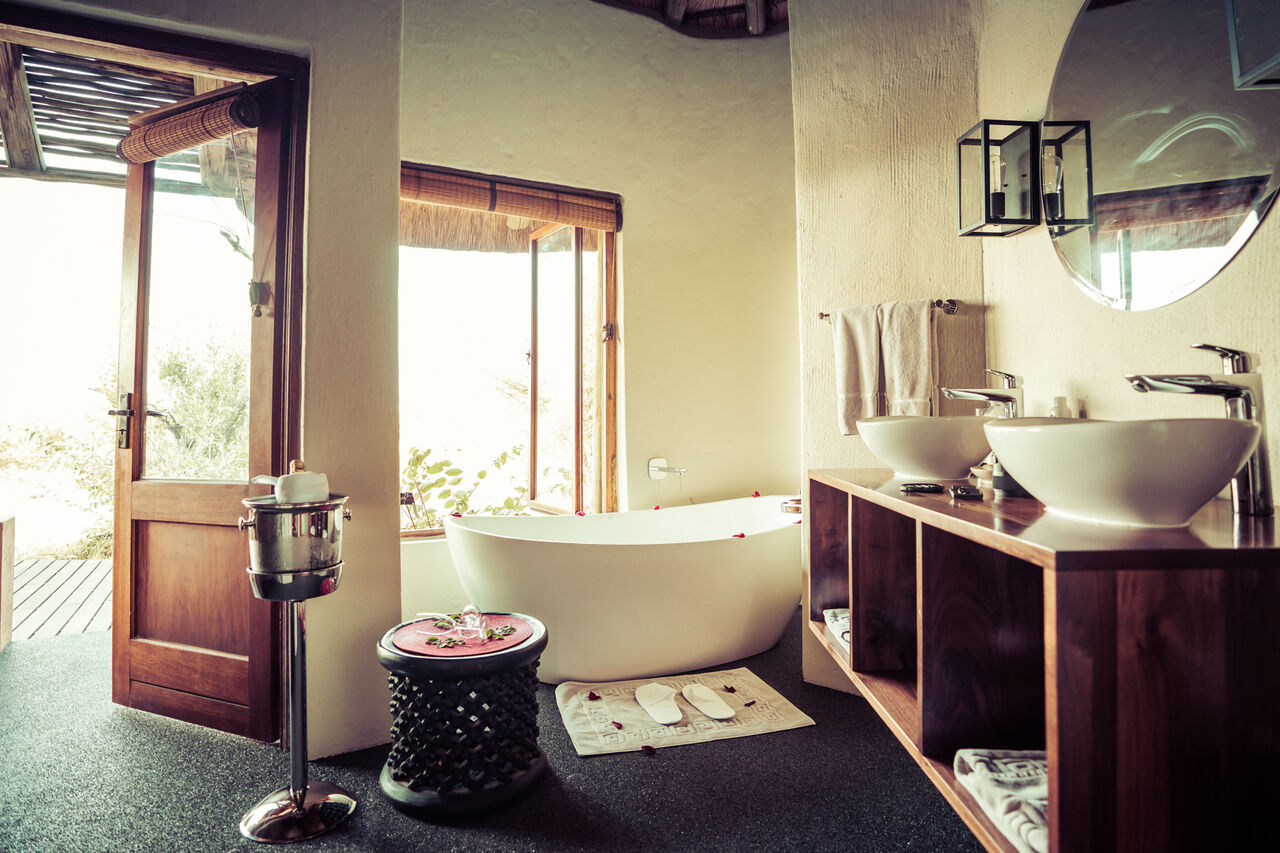
Day 141: Dry season
When I get home from my vacation, I think I have been struck by lightening. On my balcony, the plants. Everything withered. There is not a single green leaf. Even the Japanese snowball tree, which had lush green leaves and white flowers, consists only of dry, brown branches. My balcony looks to a certain extent like the Madikwe Reserve in the dry winter time. So maybe just like now. But what has happened on my balcony?
I am not an experienced gardener, but, of course, I didn't just go on vacation for five weeks and let my plants dry up. I bought a sophisticated, automatic irrigation system. All hoses and branches were correctly plugged together and the nozzles precisely adjusted. The watering computer was programmed so that all plants receive exactly the right amount of water every day. Even a test phase before the holidays worked perfectly. I'm a mathematician, so all was very precise. I went on vacation without worry.
And now that. I feel hurt in my honor!
Oh God. The beautiful Japanese snowball. I do not know if I should laugh or cry. It looks very much like a dried up sickle bush from Madikwe!
At least I can find the cause of the problem right away. The first hose connection has come loose. The water ran straight from the tap onto the floor. Really stupid.
Maybe I still have a chance. I remember the annual dry season in Madikwe. For many months, for example from May to October, the plants do not get a single drop of water. Nature turns brown first, then yellow. Not a single green leaf in sight.
And then, maybe in November, the first rain will come. Sometimes not even much water. And lo and behold, from one day to the next, everything just turns green again. Our guests at Rhulani can hardly believe this transformation.
I've been told to dispose of the Japanese snowball right away. But if I think that the plants in Madikwe can survive six months without water, my Japanese snowball can probably survive five weeks. I'll wait and see.
But for my next vacation I will probably ask my neighbor if she can water my plants.
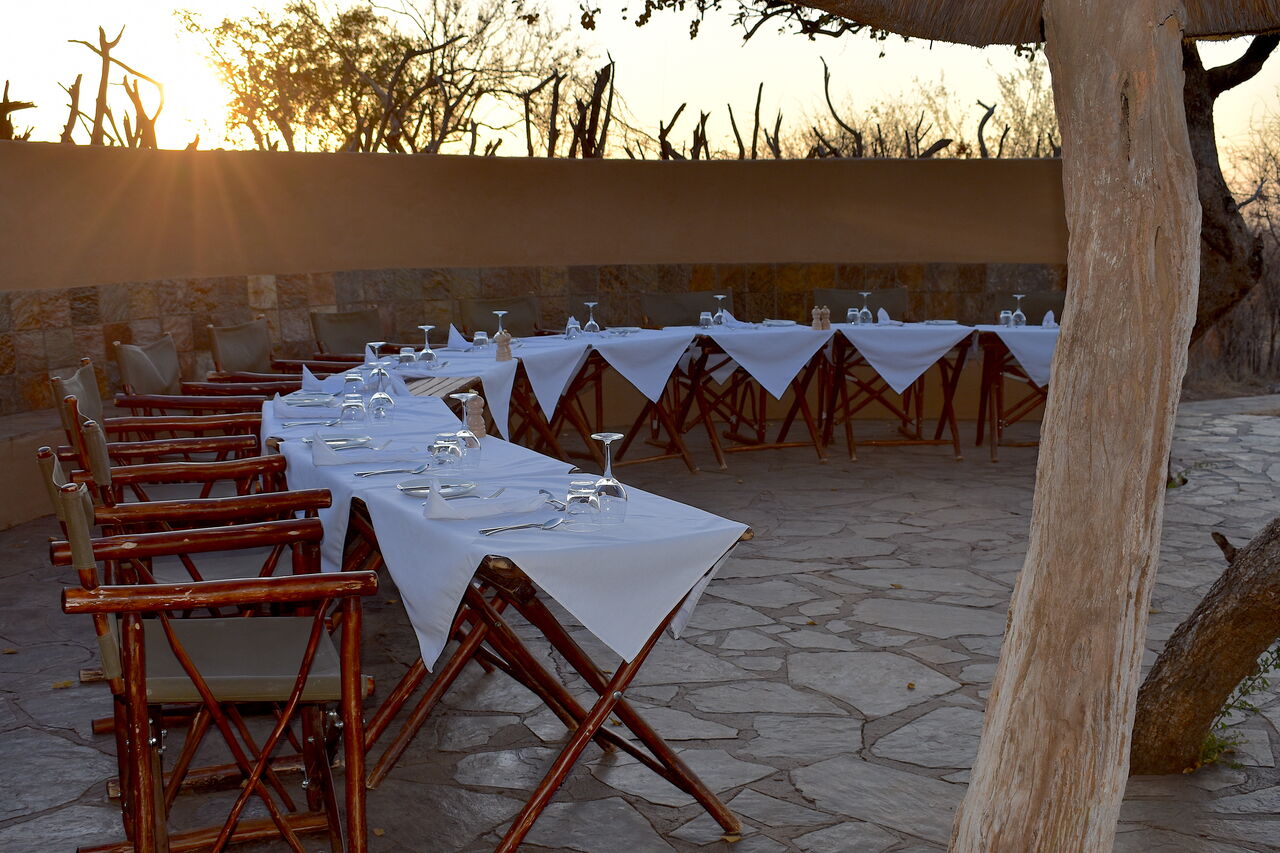
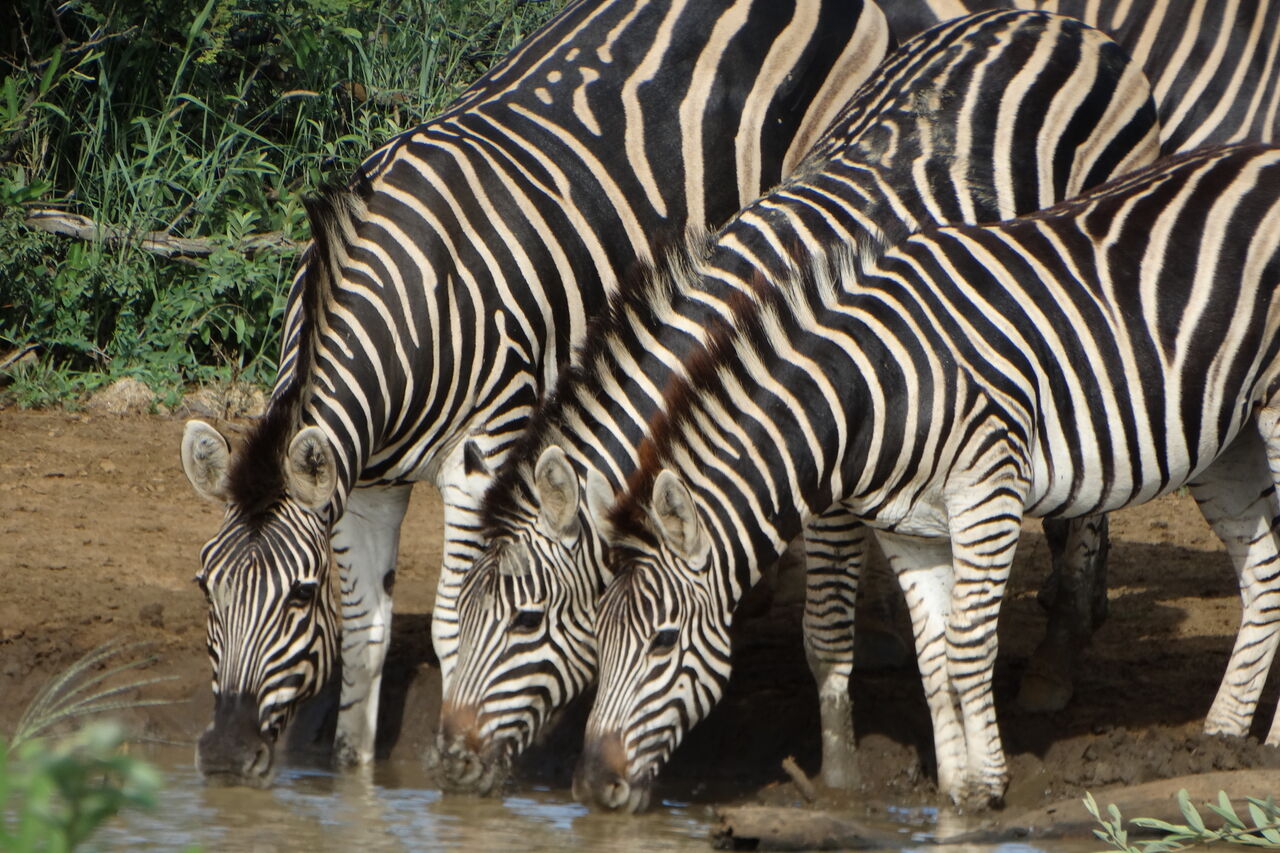
Day 140: A good middle way
So. After my greeting to Carla and Riaan yesterday, we are already at the point where we can exchange ideas and set-up plans. The situation is still difficult and it will not be stable for the time being. Nevertheless, I feel that we will find a way to offer Rhulani as a workplace for our staff and as a safari destination for our guests in the near future. Even with COVID-19 present. This is basically the content of our hourly meeting today.
For me, today's exchange is primarily aimed at making me feel that my staff is fully supportive of the plans to reopen Rhulani. As the owner, it is of no use to me if I present a nice plan out of my home in Switzerland and it is then received with resistance at Rhulani, and things go totally different.
I have already seen hotels that hastily opened their premises under pressure from their finances or from booking requests and now have one problem after another to solve. In addition, the implementation of the COVID-19 Safety Protocols takes time. Insufficient awareness of the rules, missing training of staff could quickly turn into a disaster. For all involved. Guests want security, and so do we. We can currently afford dealing with a closed lodge. But by no means we could afford the consequences of a guest getting sick because of a negligence.
As a second extreme, I see hotels that have already communicated that they will only open again next year. This would provide planning security, but it could also lead to an enormous loss of trust, not only among travel partners who bring the business, but also among staff who you have to dismiss and then maybe find work elsewhere.
In today's conversation, I am therefore explaining about what I consider to be a realistic middle way. We will open as soon as it is possible for South Africans to travel in their country, but we will take enough time to meticulously implement all the COVID-19 protocols so that we can ensure the main need of the customers: safety.
My team is sitting in the office of Rhulani. Unfortunately, I don’t see the spontaneous reaction of them at the other end of the line. But I guess the call went well, as I only get positive feedback to my proposal.
And yes, I'm Swiss. We always choose the way in the middle.
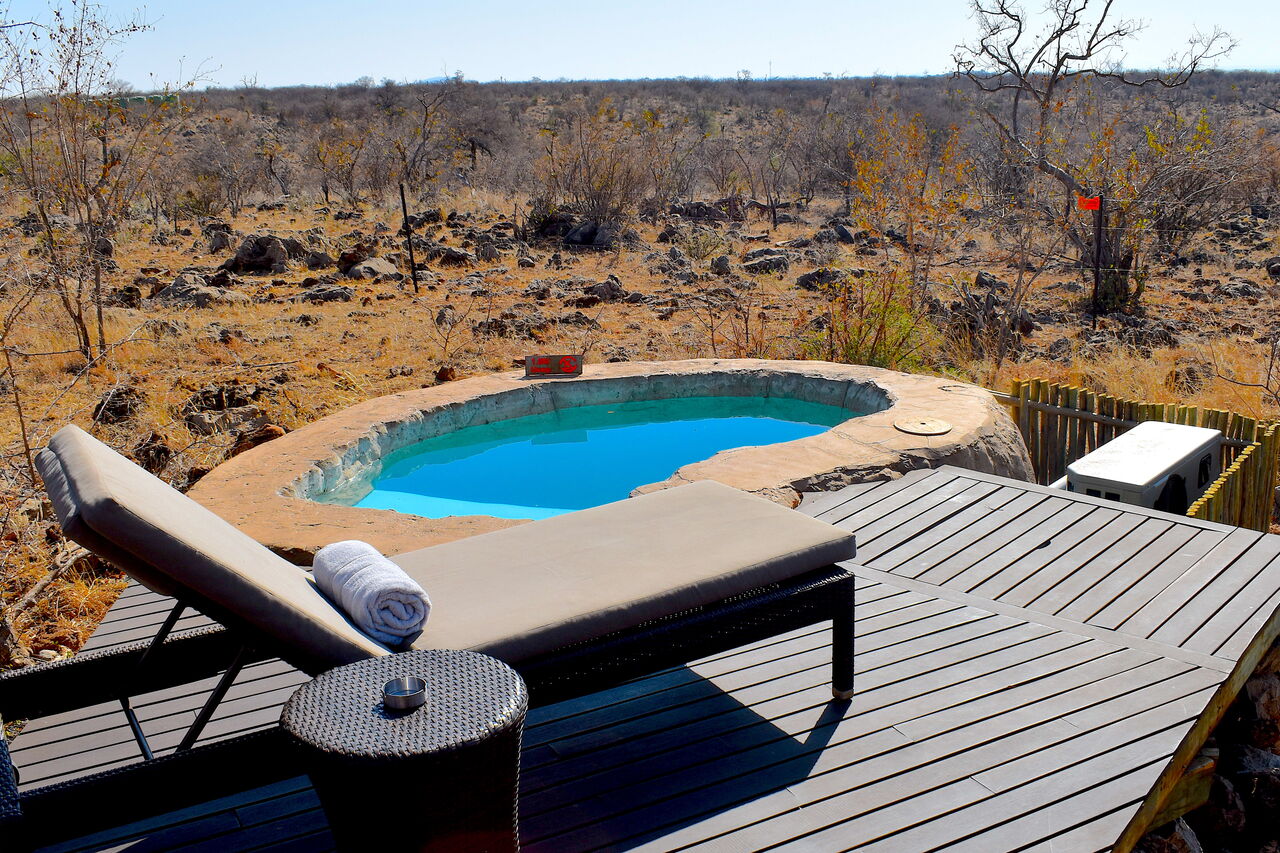
Day 139: … as if there was no coronary crisis at all
I've been waiting for this moment for a long time. My management couple of Rhulani, Carla and Riaan, have returned to the lodge after an extended break and, above all, after driving many kilometers on South African roads. I have so many things that I now want to discuss with both of them and we will have to tackle. But before I shower them with my energy, I ask how it's going.
I've known Carla for many years, so when I hear her voice saying "Hello" I already know if she is feeling well. Luckily, she is. Her absence was more than 50 days. She says they were so excited to come back to Rhulani.
To be honest, I had my doubts. There isn't much going on at Rhulani yet. We are still closed to guests. We don't know what the future will bring. So this is not exactly a state to look forward to when coming back.
I ask Carla how the trip by car went in view of the "intra-provincial travel bans" that still exist? "Rolf," she says, "on our return trip we crossed pretty much all of the South African provincial borders. There were no road blocks, no controls by the police. Everything was normal. Even the traffic was as intense as if there was no coronary crisis at all.
I feel more from Carla’s words than just the joy about an unproblematic return trip. It is happiness about the fact that South Africa is on the way to opening up. Return to normality. The curve of the daily new infection rate is now clearly pointing downwards. Since a few days hotels are allowed to be open. Everything is moving in a good direction.
Cool. So we definitely have an excellent base to discuss and align our plans over the next few days. After my vacation in Crete, I know that despite considerable uncertainties, there could be a way to run a hotel. Even with the virus.
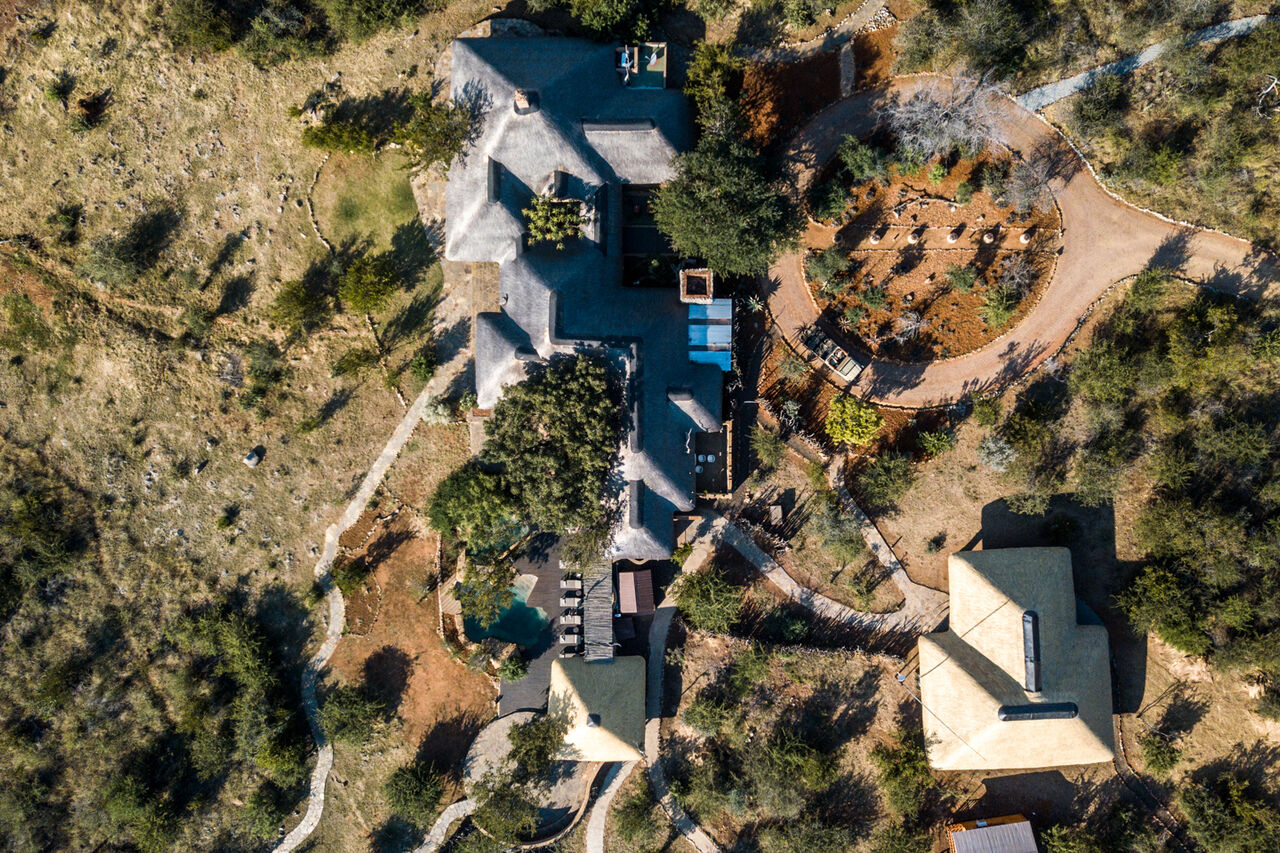
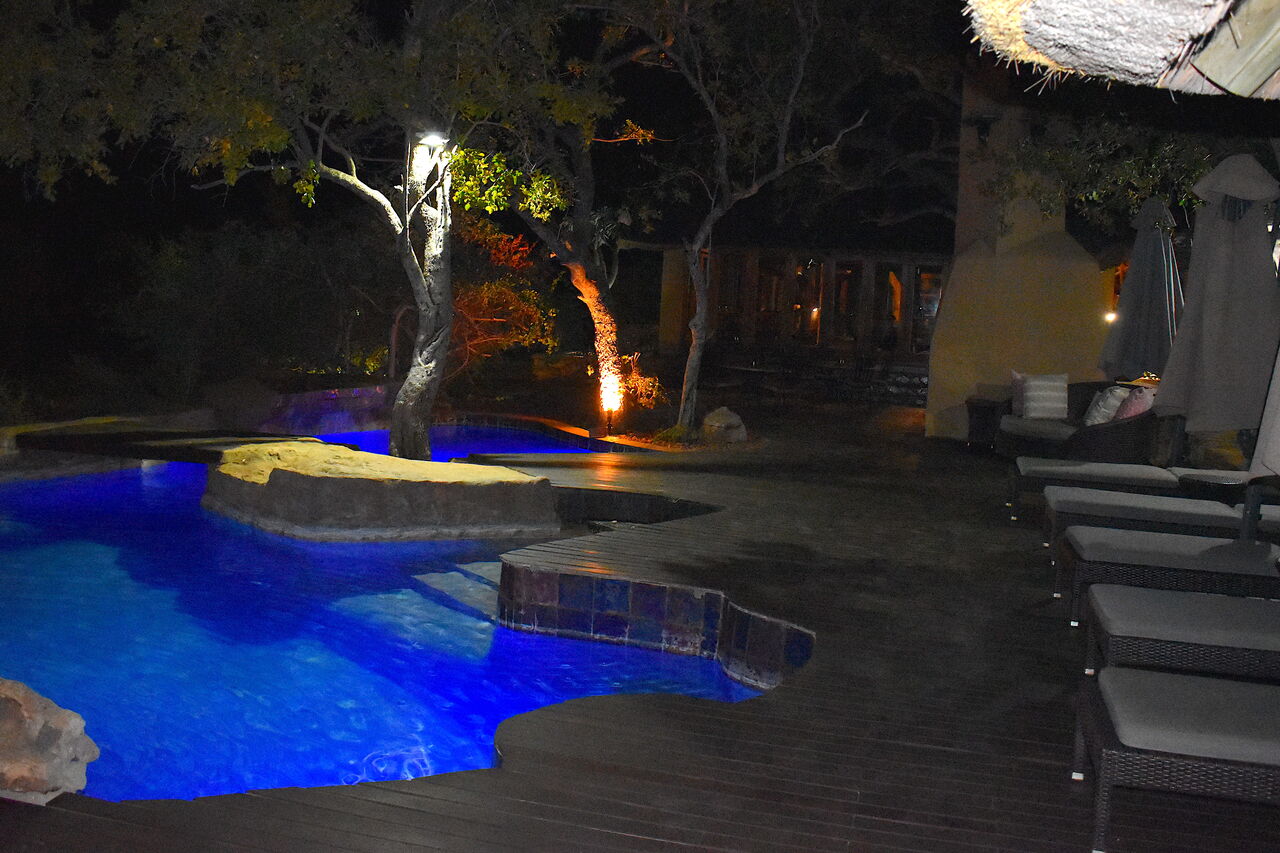
Day 138: Michael, the night guard
We get a call from the gate. Michael, one of our employees, is there. He needs to pick up something from his room. At Rhulani, we never get visitors during lockdown, or almost never. Michael’s visit is a pleasant surprise for us. He is one of our rather inconspicuous workers because of his role as a night guard. But he is a funny guy. One of our most loyal employees. I remember a funny conversation with him.
Michael started more than seven years ago as a casual worker at Rhulani. He got offers from other lodges for a permanent job, but he rejected all of them. He liked Rhulani, the team. He felt at home here. In 2014, we gave Michael a job and since then we have one of the most loyal employees you can imagine.
I definitely wanted to get to know this man better. And so it happened, on my following trip to Rhulani. One evening, after a last drink in the bar, Michael was standing there, waiting for me. He had a flashlight in hand, to escort me to my room. Rhulani is an unfenced camp. Even I, as the owner, cannot walk around alone at night.
So we both walked down the pathway. Michael lit the lamp in the bushes. Looking if there is an animal. I walked behind him. I asked, almost whispering: "Michael, what are you doing in your spare time?"
“I am a priest in my village”, Michael answered.
I knew that all of my employees were doing other things besides their job at Rhulani. But our night-guard being a priest? I found that special.
And it gave me an idea. We had just been asked by a guest as to whether we can hold weddings at Rhulani, and if we have a pastor on site. So I asked: "Michael, could you imagine performing wedding ceremonies for our guests?"
"Oh, no," he said to me in a slightly trembling voice. He felt uncomfortable. "I am rather specialized in funerals.”
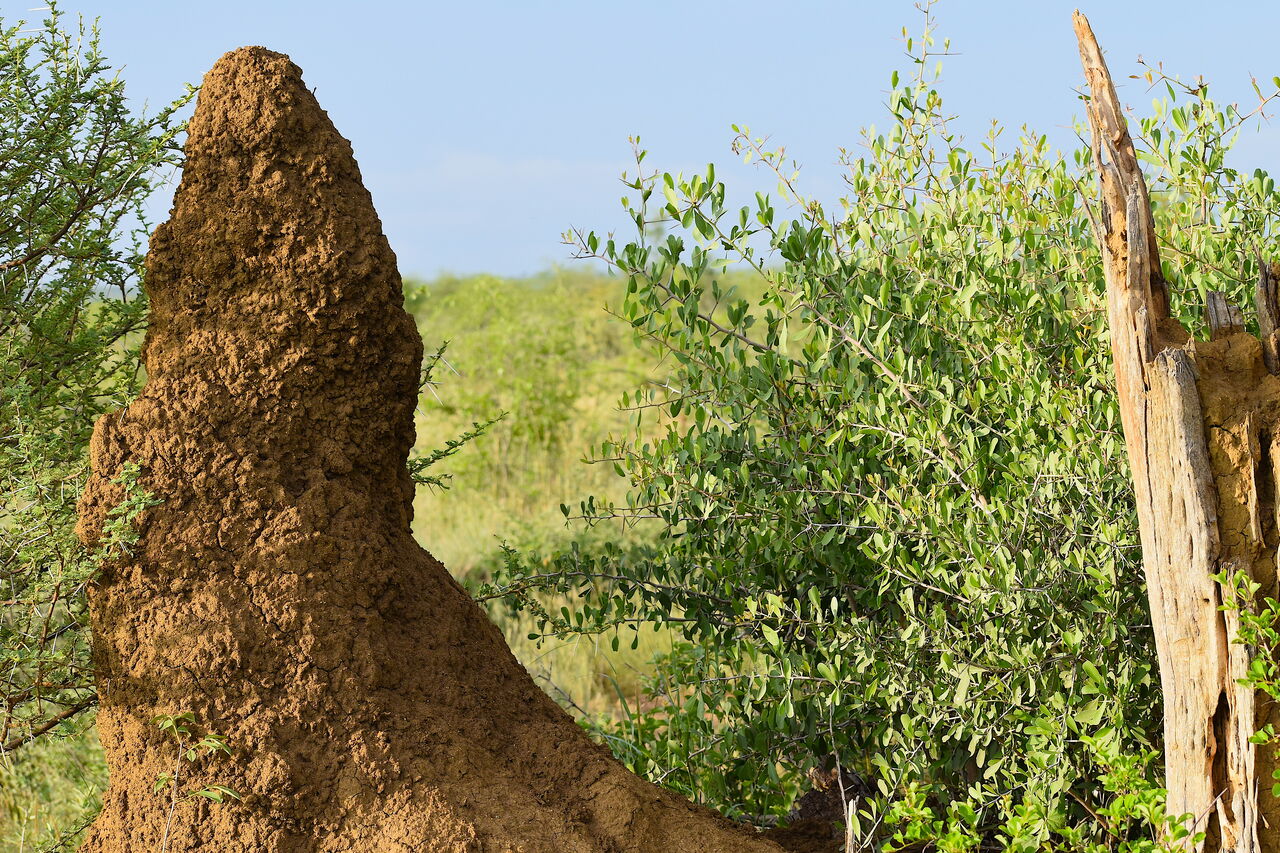
Day 137: An enormous effort
My holidays in Crete are almost over. I end up having a glass of wine with Alex, the hotel manager. I see him happy and relieved as the season has somehow got underway despite Covid-19. But I also see him tired, and tense. The effort involved in managing a hotel right now is enormous. The insecurities can be felt every day by all employees. You don't know what's coming tomorrow. It gives me a feeling of what to expect at Rhulani as soon as we open again.
"Rolf, you can't imagine how much effort it is to implement all the protocols and safety measures," Alex tells me.
To cheer him up a little bit, I say that it seems to be worth it. Guests are happy and the occupancy rate in the hotel seems to be increasing day by day. This is my impression.
"That's right," he confirms. "But do you know how much effort it takes to prepare a room for a guest that has been closed for ten months?"
“I can imagine that very well”, I say. Alex knows that I own a safari lodge in South Africa. I tell him that I see this also as a big challenge for us. We are in the African bush. You can't just clean and set up the room. I tell him that we will have to take out the snakes and scorpions first. “What?” Alex says. I laugh. "That was a joke. It's not like that," But I tell him that during lockdown, a few animals think there is nobody at the lodge. They come closer.
I show him pictures of Rhulani's kitchen that Sean recently sent me. It looks like a bomb went off. The window shattered, the door out of the frame, a total disaster everywhere. I explain to Alex: “That was done by the baboons ...”
"You have baboons? In the lodge?" he asks in astonishment. “Yes, we are in the middle of a wildlife reserve. There are also lions, buffaloes, zebras.
I see Alex smiling. The whole story seems to cheer him up. We toast. I invite him to visit Rhulani. Ideally, after the New Year. Then it's winter in Crete and his hotel is closed. And, hopefully, Rhulani is then open.
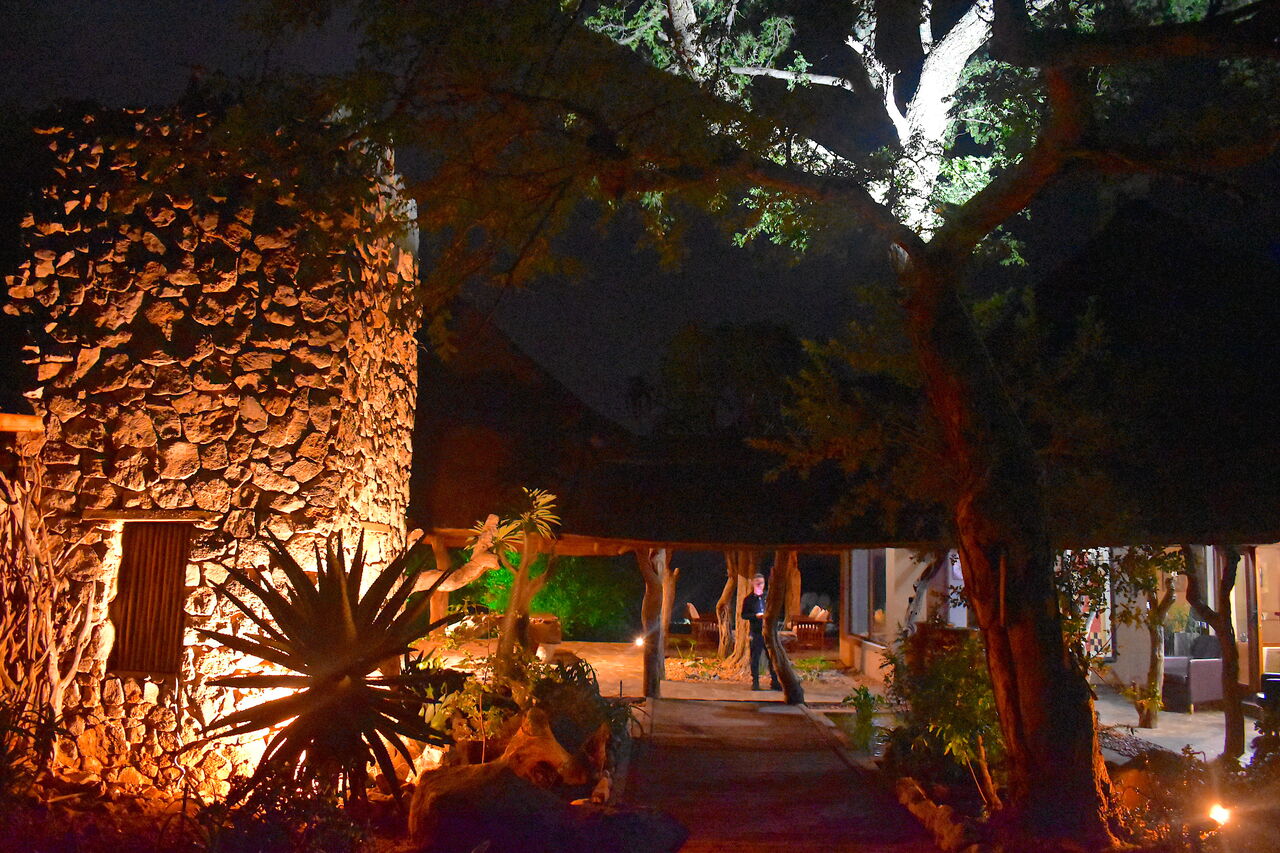
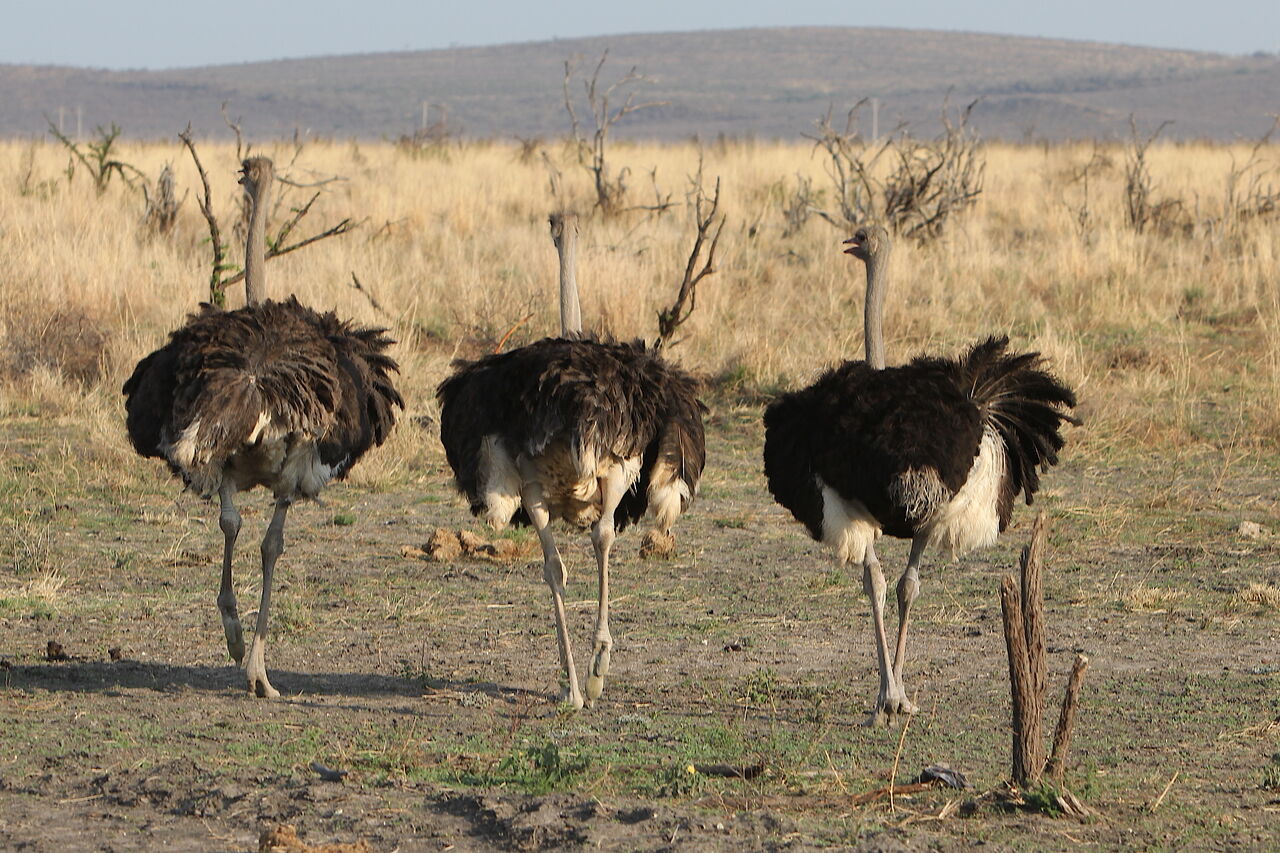
Day 136: Kangaroo or kudu?
Today my 4 year old son and I have a little discussion in the swimming pool. He jumps around and says: "We are both now animals and the one that jumps higher is the winner." I ask: "What animal are you?" He says: "I am a kangaroo." I think about it and say: "Then I'm a Kudu". My son is happy: "Yeah, I won." That is the start of our discussion…
Which animal can jump higher. Kangaroo or kudu?
This does not matter to my son, because the kangaroo is known for its jumps, so he sees himself either way as the winner. In addition, the Kudu is "only" an antelope. A fully grown animal weighs over 200 kg. The second largest antelope species. A kudu jump? And higher than a kangaroo?
While we are jumping around in the pool, I tell my son about the beautiful kudus from Madikwe, which are actually known for the high jumps.
Kudus have huge ears which they can turn in all directions. The males have beautiful horns. The gray fur has white stripes. And above all: you see the Kudus very often in Madikwe. Almost as often as Impala or Wildebeest.
When these imposing animals stand between the bushes, you don't notice how much strength they have in their legs, how high they can jump. But I know that kudus can easily jump over high fences. Even the fence around Madikwe is not an obstacle for them. Kudus can go in and out.
My son is not really listening to me. “I won”, he says. I give up and congratulate him on winning.
In the evening, the question still miracles me and I look it up on the internet. Kangaroos jump up to a height of 1.50 meters. Kudus over 2 meters!
My son sleeps peacefully. With the smile of a winner.
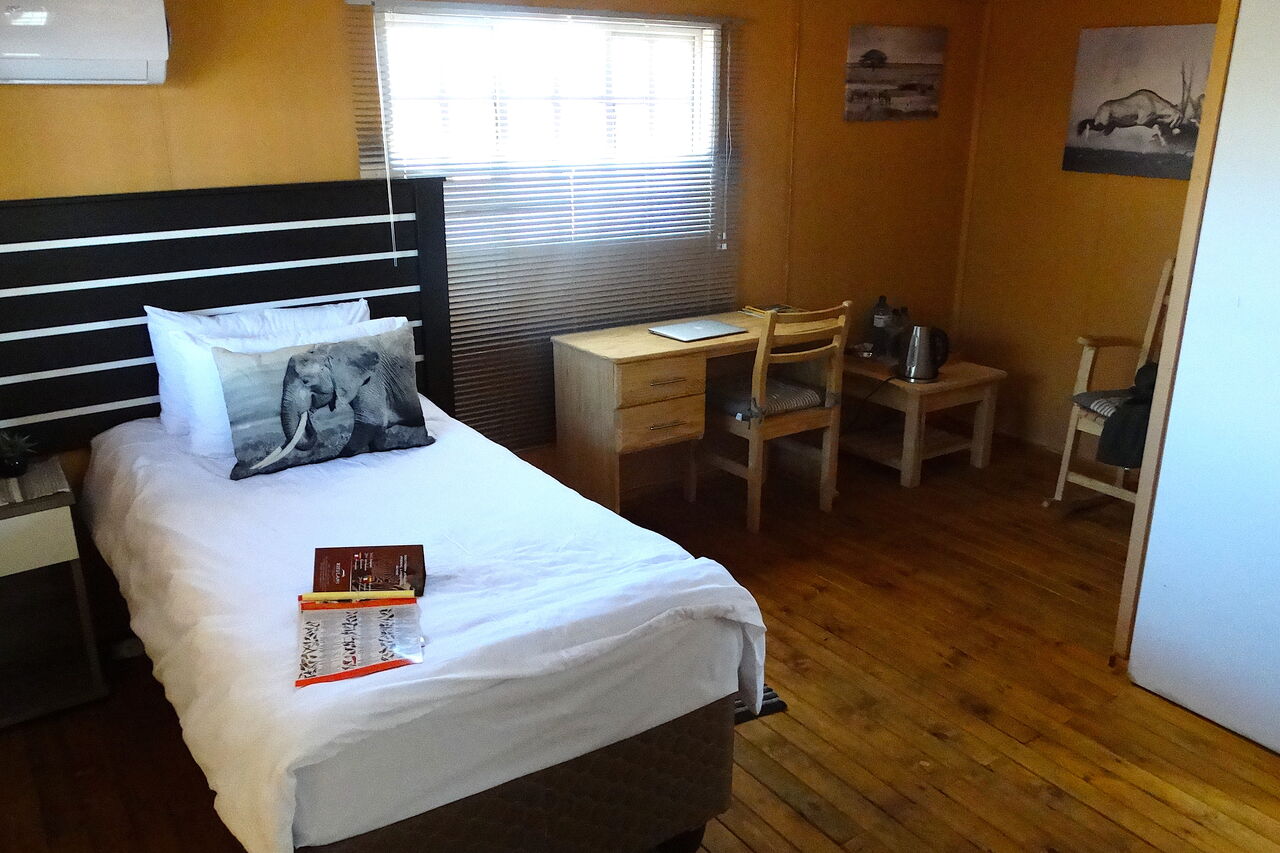
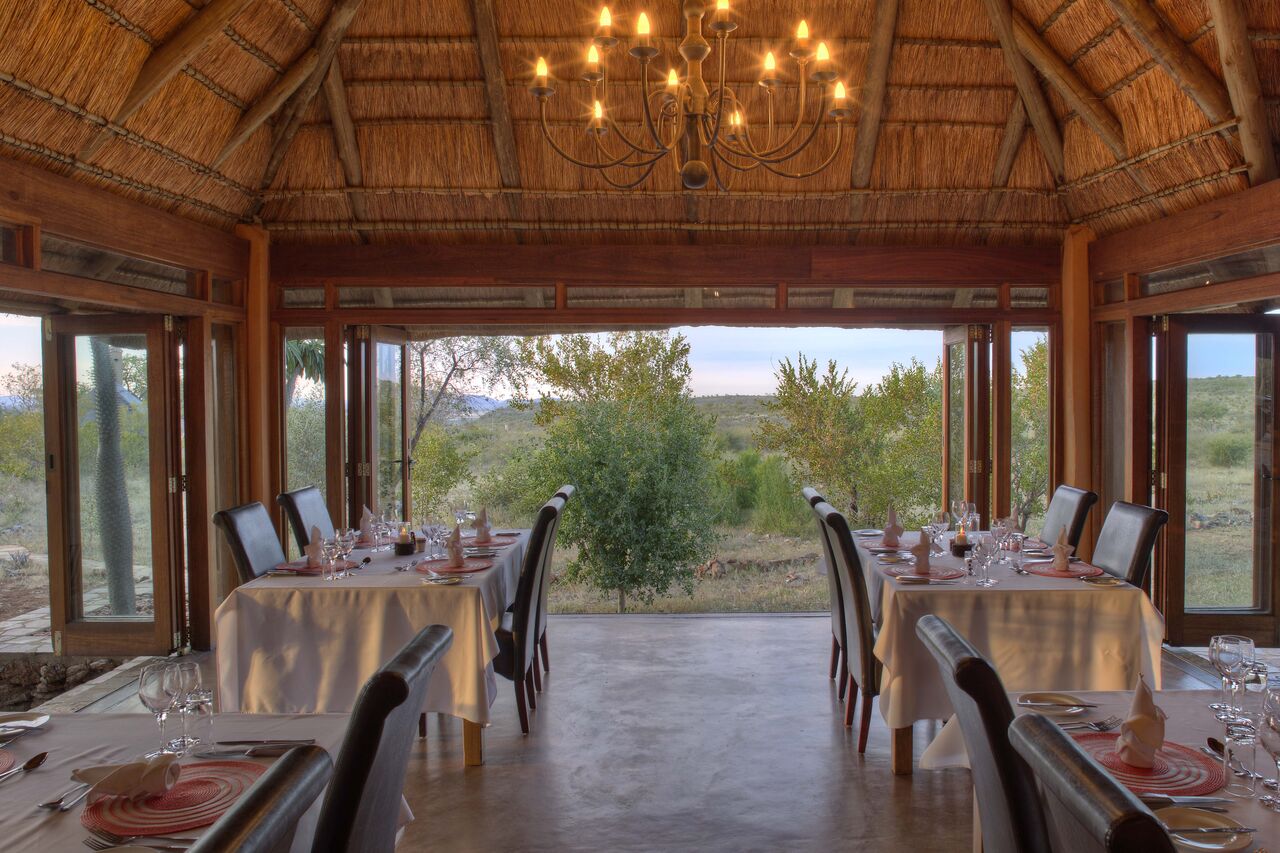
Day 135: The 180kVA “elephant”
I am glad to hear Sean's voice today, happier than in the last few days, and relieved. "Electricity is back, we are all set," he says. The total lack of knowledge during several days of where the problem was and then the uncertainty as to whether it was really the burned cable which was found yesterday put quite a bit of stress. In the meantime, our generator did a great job. It helped us out for days. Our generator … that was a great decision!
Like most safari lodges, Rhulani has an electricity generator. As a 5-star lodge, we do suffer power cuts from time to time. Guests usually do understand. We are in the African bush.
But we are a 5-star lodge and cannot afford to be without electricity. If the power goes away, the generator kicks in automatically and power is back.
It was almost two years ago when Riaan pointed out to me that we might have soon problems with our generator. The model was still of good quality, but our power consumption had increased so much over the years that the generator reached its performance limit. It would be a matter of time before it gives up his ghost.
No electricity and the generator broken? I could hardly sleep any more at the thought of it!
In a less than ideal moment, when we had already decided on other investments, I was all of a sudden confronted with the need for a stronger generator. Capacity of 180 kVA, as big as an elephant! So we even had to build an own house for it. The cost ... I can't even think about it anymore!
Nevertheless, as a good Swiss who doesn't skimp on necessary maintenance work, we decided to buy and install this "elephant". Our old generator is still used as a back-up. So double back-up. Since then I have been sleeping peacefully again.
While I thank Sean for the good work with the cable replacement, I am also proud about our elephant. He passed the endurance test.
Day 134: Madikwe Game Reserve is open again
Interestingly, this important piece of news was almost unnoticed. Madikwe Game Reserve has reopened after four and a half months. Since yesterday, it is possible to go on a safari in Madikwe again. It all came almost out of nowhere. For the moment, however, this message is not yet very relevant for us.
Following the recent announcements from the South African government about tourism, I expected the Madikwe Reserve to open its doors and allow the lodges to resume business. I was just surprised that all this happened from one day to the next. Without any plan or preparation.
Inquiries are already coming in as to whether Rhulani can accept a booking for ideally already tomorrow. It shows that people want to go out after months of lockdown. This is despite the fact that traveling in South Africa between the provinces is still not permitted.
I hear comments that elsewhere in South Africa safari places are already fully booked, as it is easy to circumvent the intra-provincial travel ban. In addition, the protection concepts of hotels, which would require a lot of preparation and training before opening, are only important on paper. In reality everything is more relaxed.
I don't take it that easy. I take it seriously. It strikes me that guests have to take along a confirmation of residence in the form of a utility bill and present it at the gate. It is therefore not clear whether guests from other provinces will then be allowed to enter the reserve. This is a risk.
In my holiday hotel on Crete, where I am staying, I can also see how responsibly and precisely the COVID-19 protocols have been introduced and which heavy fines hotels will get here if they fail to comply. Guests also feel very comfortable and safe as they see that the hotel takes the situation seriously.
Nevertheless, I am positive that the "intra-provincial" restriction will soon be lifted. Then we will definitely start at Rhulani to prepare and set an opening date.
Day 133: A burned cable
Sometimes it happens that I call Rhulani and get no connection. So it happens today. Usually, that’s not a great problem. We are in the African bush. Finally I get a line, but nobody is there. I start to worry a bit. For no reason, maybe. There are currently only Tom-Hendrik, Sean and Alasdair at Rhulani. They don’t have to be connected all the time and wait for my call. At the end of the day I find out what's going on. They were working up a sweat today…
My assistant manager Sean tells me in the evening that there is currently no electricity. We are running on generator. Somewhat unstable. Poor signal.
Since I took over Rhulani, an unstable power supply is part of the business. The reasons are complex, but mostly due to a power cut by the state supplier Eskom, sometimes due to a defect in a distribution box. But this time the problem seems to be somewhere else.
With the help of specialists, it soon became clear that somewhere an underground power cable leading to us had broken. They searched for a while with special measuring devices for the exact spot, somewhere outside, along the road, in the middle of the bush.
“Finally, we found it”, says Sean. I hear relief in his voice. "We cannot explain what happened there. The cable literally exploded underground."
Sean tells me that by now, the problem has not been resolved. The two poor buddies Sean and Alasdair had to dig a trench almost one meter deep and seven meters long. "We would have been happy to have more helping hands today”, says Sean. But the main work is done. He thinks that a sufficient length of the burned cable is now exposed and can be replaced.
I have to swallow hard when listening to Sean. When I think of the bill we will receive at the worst time... But I know something like that can always happen. Even during lockdown. And I can be glad I have a great team at Rhulani who takes care of it.
Day 132: What will change with a vaccination?
Every day I read new articles about the race for the development of a vaccine for COVID-19. It sounds like then all problems will be solved. I have no doubt there will be soon a vaccination available and it will protect people from getting infected. But what will change in our social life? And - thinking of Rhulani – in the way you can travel and experience the African bush? Will we really have our previous life back? I have my doubts.
Vaccinations will only ever be used for a rather small part of the population. It will not be available everywhere in the world, and it will certainly not be mandatory. I live in Switzerland. There are also many opponents of vaccination.
How is life then in a society where a percentage of the population is vaccinated against COVID-19 and the rest are not? While the vaccinated can resume their everyday lives without any worries, the spread of the virus remains an issue in society and thus the management of the health system by the governments. The precautionary measures such as social distancing, hygiene, washing hands, protective masks in public space, etc. must remain in place. It ensures that there is no new wave among the non-vaccinated.
What would a hotel like Rhulani do? It is a somewhat utopian thought that guests could be asked to provide proof of vaccination when booking. In return, we could then eliminate all protection concepts. Everybody could then enjoy the vacation as before, watch a lion without protective mask. But as I said, it remains an utopian thought.
I am therefore in process to ensure that our COVID-19 protocols are implemented with a long term view. And I hope to read from now on more articles about how COVID-19 can be treated. You get infected, get a medicine, and you recover. That would finally help and make the protective measures unnecessary. Give us back our life. Not the vaccination.
Day 131: 37 Degrees
That was not a good idea. Still on holidays in Crete, we pick the hottest day of summer so far to take a long walk from the hotel to the town. The thermometer shows 38 degrees Celsius. The sun burns on our heads. It is a type of heat that I rarely feel when I am at home in Switzerland. But here in Crete, and also in South Africa, that’s normal.
Looking at worldwide weather, we don't have 38 degrees at Rhulani today. We are in the final phase of winter there. Dry, sunny, with a temperature of 25 degrees. Actually very nice.
On our today's walk my head is boiling. I remember the hot summer days in Madikwe. You drink a lot of water and spend the hottest part of the day in the cool water of the pool. Like the elephants. They spray themselves with water and mud to get a refreshment.
Your have you air con on in your room, hide in the shade. Like the the zebras that flock together in the small shade of a bush. They wait for the cooler evening until they come out again. They are certainly not going on a walk in the blazing sun for no reason.
Finally, the walk is over. We are greeted at the hotel entrance and, as always, fever is measured. This is one of the protocols in times of COVID-19. Oh gosh, I hope we will not have a problem here. Luckily not. 37 degrees. Human body is a miracle. We go back to our room. I could have bet my boiling head is hotter than the outside temperature.
In times of COVID-19 entering the hotel with fever would be problematic. They tell us, employees with temperatures above 37 degrees will be sent home immediately. I think this will be one of the rules at Rhulani as soon as we are allowed to open again.
But now I'm looking forward to the pool and a refreshing Coke.
Day 130: Quiet villages
Of the more than half a million people who are affected by a COVID-19 infection in South Africa, not even 10,000 live in the North West Province. This is where Rhulani Safari Lodge is located. How big is the concern about the virus in the nearby villages? How do Rhulani's employees, who live in different villages, manage this time?
I have long wanted to write something about Rhulani’s employees in my diary. But that is difficult. Communication is not that easy. In remote areas there is no cell phone signal. I cannot just send a WhatsApp message and ask.
Sometimes, our employees contact us in the front of house. It seems that all of our staff and their families are healthy. That's the most important thing. They miss the daily work at Rhulani. They want to know: when is it going to start again?
It seems there are no COVID-19 cases in the villages where our employees live. The villages are very quiet. Following the rules is part of their Tswana culture. The recommended restrictions are taken seriously.
In the country where I live, the "well-educated Swiss" should take this as an example. A few days ago, the Young Boys from the capital city of Berne became Swiss football champions. The whole night was celebrated in the city, the fans were in each other’s arms. No distance, no masks, no worries. COVID-19, far away…
In the villages of North West, you will maybe find a person walking on the road not wearing a face mask. But there is no gathering of people. No meetings with friends. Our employees are sitting at home. Waiting patiently. Chatting from house to house, from neighbor to neighbor, over the fence. They only leave the house for hopefully making some extra money. With small side business, selling little things, doing brick works …
The big concern remains. Not because of the health risks associated with this virus. People have gone through more terrible things. There is the concern about the consequences of the lockdown. About the future, existence, life.
Day 129: Little lions in the hotel
In our hotel in Crete they say a cat has given birth. Somewhere. I set off with my son to find the little kittens. In the shade of an olive tree we find a plate with water. It must be here. But the cats are not here. As an experienced safari expert for such situations, I tell my son: "We have to wait and be patient.” It strikes me that we also got quite a lot of youngsters in Madikwe in the past few weeks. We sit down under the olive tree.
While we are waiting, I show my son the photos which Riaan sent me a few weeks ago from the newborn wild dogs. They are so cute! I tell my son that he will maybe see these dogs himself, one day in the future, although they will probably be grown up by then.
And then I remember a story from a few days ago about little lions playing right outside Rhulani’s office. Sean told me, the little ones were born just when the lockdown started. They must around 4 months old. I show my son a photo with one of the young lions.
My son opens his eyes wide. He wants to know more about it. He loves the lions. I tell him, that there are three actually three of them. All of them are boys. The father is called Monomogolo and the mother Maklapa. They were born in the South of Madikwe. We had found them close to our airstrip, somewhere in the thick bush, in and old cliff area, which has a cave like structure. Ideal for hiding.
Then I tell my son about Leopard Munye. He also became father very recently, Sean said. A little leopard? I would like to see that myself! I have no photo from a baby leopard. According to Sean, he should be living very close to Rhulani, at Inkwe Pan. There's water there. I told Sean to sit down and wait there with his camera. Like we are here now, under the olive tree.
Suddenly, out of nowhere, the cat mother comes out of the bushes. With her, five little kittens. All have the same, reddish-brown fur. They look like little lions! They bravely go to the plate to drink water. Just next to us. We are watching. Fascinating!
Day 128: "Intra" ... not "inter"
There is some unexpected movement in the tourism sector. I see a headline on TV saying that leisure hotels in South Africa leisure travels can open for inter-provincial travels... or how was that again? I was wrong. I didn't look closely enough…
If you read something quickly, such mistakes can happen. And if, like me, you hope that the ban on inter-provincial travels will finally be lifted, you are already wrongly conditioned when reading something.
To confirm my misinterpretation, it was not helpful that immediately after Madikwe Reserve announced that it would open soon, and that a customer wrote us by email he is interested to make a booking for tomorrow morning.
Can that all be true? I read the article in more detail. Aha ... here is the confusion. The critical word was "intra", not "inter". This means, hotels will be allowed to open to welcome guests for intra-provincial travels. Guests can go to hotels in their own province.
Rhulani Safari Lodge is located in the South African province of "North West". Despite many overseas guests, we actually have a significant number of local customers. They come for a week-end or during school holidays. Most of these guests live in the Johannesburg area, which is located in the province of Gauteng. Thus citizens from Johannesburg or Pretoria cannot travel to Madikwe.
North West was incorporated after the end of Apartheid in 1994, and includes parts of the former Transvaal Province and Cape Province, as well as most of the former Bantustan of Bophuthatswana.
The province has an area of over 100,000 sqm and is therefore more than twice the size of the country of Switzerland where I live. With an estimated 4 million inhabitants, it has about half the population of Switzerland.
I remember that we have guests from Switzerland with us almost every week. But do we have guest from North West? We certainly do, but not many, or better to say, not as many to open our hotel.
I will definitely wait a bit more until I finally see the word "inter". Not "intra".
Day 127: One event or two events?
In my diary entry yesterday, I left the impression that I am generally not satisfied with the behavior of insurance companies. But that's not correct. I work at an insurance company myself and know about the good values it generates. I also made good experiences at Rhulani. One of them was actually quite funny.
Years ago we had problems with the baboons. A big troop ran through Rhulani. They sat down on the roof of guest's chalet number 1, where they damaged the thatched roof to such an extent that it had to be completely renewed.
The same thing happened two days later at the opposite side of the lodge, at chalet number 9. Also here, it was a total loss on the roof.
Time to have a look at my property insurance in detail. I called SATIB, which is our broker. Fortunately, the damage to thatched roofs was covered. And not only that: the destruction by animals including baboon was explicitly mentioned.
However, the insured amount had a maximum limit "per event". The big question was whether the damages were caused by a single or two independent events. I remember, the same question was posed at the Twin Towers in New York years before. The entire damage would only be paid in case of two events.
In my case, the damage occurred on two different dates and on the two most distant chalets. This helped. A connection of the two damages was not found. Nor could it be shown that the baboon had one intention to destroy the two roofs.
I must say, the insurance company behaved very well. Our "Twin Tower" damage was finally paid in full.
By the way, to prevent future damage, we installed a wire mesh on all of our thatched roofs. This is also called a "bird wire", or in our case we can call it a "baboon wire". You hardly see it from the outside, and since then we have had no such damage any more.
Day 126: Pandemic insurance
As a Swiss citizen and working for a large insurer, good insurance coverage is very important to me, also for my business with Rhulani Safari Lodge. Since the beginning of the COVID-19 crisis, I have been trying to understand whether we are entitled to receive payment for the time of business interruption. I consider myself a bit of an expert myself, and so I filled out the damage form anything but optimistic. But there is still some hope.
At first glance, the insurance industry lives up to its reputation. Rhulani is the policyholder, we pay the premium punctually for many years, and now that insurance is needed, there is no benefit from the "Business Interruption Cover". Of course there is a logic. A fundamental industry debate. Pandemics are not insurable. A closure due to a lockdown is not an insured event.
Interestingly, however, the insurer tells me that if I could present an infection case within a 50 km radius of my property, I would have a chance. All right. I don't know anyone in person, but the city of Gaborone, capital of Botswana, is 47 km from Rhulani. The cases there are known. I informed the insurer. I've been waiting for an answer from the insurer since then.
In the meantime, we continue to pay the insurance premiums even in the lockdown. It is mainly for property fire and general public liability insurance. We still need this insurance protection. The premium is well over 20,000 Rand per month. A quite insignificant value when you have no income at all.
Today I get a message from the insurance broker that there may be hope. It seems they are discussing about is an industry solution. In Switzerland, too, the main insurers recently sat together and agreed on an out-of-court solution and made payments to their clients. Maybe there is something similar in South Africa? Let’s see…
Day 125: One bushbuck less
Even after a detailed analysis of yesterday's photo, I was unable to find out which animal was killed by the wild dog pack, right next to Martin's house. It's a kind of antelope, this for sure. But to recognize the animal only because of the remaining foot, I need an experienced ranger. So I call Sean.
“Rolf, this was a young bushbuck”, Sean explains to me.
A Bushbuck? This rings a bell. During my last visits to Rhulani, I noticed that I frequently met a cute bushbuck couple, male and female, when I walked to my room on the pathways. Yes, these animals had declared Rhulani as their home. They felt safe here. You could even approach these shy animals up to a few meters. They didn't run away.
Have the wild dogs killed one of my lovely Bushbucks? “Yes Rolf”, says Sean, "but not one of the couple you have met. There was a young, third bushbuck that also lived here and was a bit shy".
Oh, what a shame, I think. Of course I am aware of the laws of nature and find a wild dog kill at Rhulani a unique experience. But in the meantime, I have grown to love of my bushbucks.
I have to say that in 2013, when I purchased Rhulani, I neither knew the Bushbuck nor knew that this antelope species was found in Madikwe.
On countless game drives I saw Impala, Zebra, Wildebeest, Kudu - until suddenly an antelope, which looked different, crossed the road. It had a brown skin with some white areas, and what I noticed was there were a few white spots on the sides. Quite unique. "This is a bushbuck," the ranger told me.
I never saw the Bushbuck on safari again until I saw my new friends in the lodge. Now it is unfortunately one less.
Day 124: An exciting walk to the office
Here in Switzerland is midsummer and vacation time. In South Africa, the lockdown continues with no prospect of change. We have almost no emails in Rhulani’s inbox. No major challenges. When I call Rhulani's office today, I think it will just be one of these normal daily calls, just saying hello, wishing a nice day. But then TH (Tom-Hendrick), our reservationist, tells me about his walk to the office this morning.
The way from his room to the office is only a few meters. He does this every day. Nothing special. But today, when he is closing his door behind him, he thinks he has seen something in the corner of his eye tat is moving. He turns, looks closer. A wild dog looks at him.
TH calls Sean, our head ranger. The two carefully go closer, to see what’s happening. The wild dog has a reddish-colored skin around the mouth. And indeed: this dangerous predator has made prey, right next to Martin's house.
And they're all there, a whole pack of wild dogs. All of them, are in a hurry to eat up the prey. A wild dog pack is the most dangerous and efficient killing machine in the African bush.
When TH finally arrives at the office and, as always, looks out towards the waterhole, he can't believe his eyes. A pride of lions happily runs around close to the water. There are some cute, little cubs. They jump onto the roof of the recently completed observation hide. The lions are just everywhere. Very close, as we rarely see them at the lodge.
Later I see Alasdair looking for the lion footprints on our daily live stream, showing us what happened. And Sean sends me a great photo of the wild dog. He is nibbling on an animal's leg. I can still see a foot. But what animal was that? What was killed here? Hard to say. I'll ask Sean tomorrow.
Day 123: Rooibos
After spending a few days on vacation, the waitress brings a delicious cappuccino to my breakfast table without having ordered it. The staff already knows that my day starts with a cappuccino. I'm a real Swiss and therefore coffee drinker. At my home in Switzerland, here on vacation, and anywhere else. No, stop, almost everywhere. There is one place where I don't order a cappuccino for breakfast ... Rhulani.
Now you are probably thinking that the cappuccino at Rhulani is undrinkable. But that's not true. We have an excellent cappuccino there, with wonderfully frothed milk and the right strength of coffee from a Nespresso coffee machine.
If I remember correctly, many years ago, I had a mild cold when I stayed at Rhulani. The waitress told me I should drink a rooibos tea. That will help for sure. Nice and hot, with honey and lemon.
Rooibos, means “red bush” and is a broom-like member of the plant family Fabaceae that grows in South Africa's fynbos. The leaves are used to make a herbal tea. It has been popular in Southern Africa for generations, and since the 2000s has gained popularity internationally.
To my surprise, the rooibos tea met my taste perfectly. The way it was served to me was also wonderful. The freshly brewed tea in a separate jug next to the cup, nicely cut lemon slices with toothpicks, honey with a small spoon, and another jug with milk. All served on a tray.
Since that experience, I no longer have to be sick to drink rooibos tea. At Rhulani my day starts with a cup of rooibos tea as naturally as here with a cappuccino.
On every trip to South Africa I buy a pack of rooibos tea bags so that I can taste the flavor of South Africa at my home in Switzerland. But something is always missing. In order to experience the full taste of the tea I need the unique atmosphere of the African bush at Rhulani.
Day 122: #Open_SA_Tourism
In my diary I have given my own personal thoughts on the ongoing lockdown for tourism and leisure hotels in South Africa. The current record numbers of COVID-19 new infections, in South Africa and also worldwide, brings tourism to a standstill. So, my way of thinking is that it doesn't really matter whether hotels are allowed to be open or not. After careful consideration, I nevertheless support the initiatives to open the Tourims sector immediately.
The current campaigns on social show the critical state of the tourism sector and how desperately the countless employees in this sector hope to be able to work again. The campaigns appear under #JobsSaveLives, #IAMTOURISM, #Let_us_be_heard, #Open_SA_Tourism, etc. Yesterday, I decided to make a post to support these campaigns for Rhulani.
Today I read in the Swiss press that Swiss citizens like me are not allowed to enter 77 countries. One of them is South Africa. So, no Swiss tourists in South Africa allowed. South Africa remains closed to many other nations that are important for tourism.
For us Swiss people, it has long been clear that traveling abroad will be complicated this year. So many booked their holidays in Switzerland. Vacation in your own country. A new experience. Now, there is hardly a free hotel room available in Switzerland this summer. The popular hotels are fully booked and campsites are overcrowded.
I can well imagine that such a "national travel boom" could also occur in South Africa. South Africans love their country, their treasures, nature and the wild animals.
There remains the uncertainty if local tourism will be strong enough to compensate for the international default. Some hotels will remain closed and some employees would probably lose their jobs. But why should the industry not give a try? At least give a chance to those hotels that can successfully accommodate local tourism? If casinos, restaurants, shops and clubs are allowed to be opened under protective concepts, why shouldn't this be possible for hotels as well?
The decision whether a hotel can be open should then be a business decision. Not a government decision.
Day 121: Birthday
Today is my wife's birthday. Since we are currently in a holiday hotel and my wife does not like to attract attention to everyone, I am looking for a way to deliver the congratulations and gifts discreetly at our breakfast table. Will I succeed?
I notice that birthday celebrations in our hotel here are not part of the general daily program anyway. This is very different at Rhulani Safari Lodge.
For many of our visitors, Rhulani is an explicit destination for a special celebration. We have honeymooners, married couples celebrating an anniversary, we have young visitors who get engaged, sometimes we have a wedding party, but above all birthdays are the most common for us.
In many cases, we are informed about the special celebration beforehand by the travel agent or the traveling partner, asking us that something special should be organized and it should be kept as a secret.
A romantic turn-down with a private dinner on the guest room’s private deck, which we offer at no extra charge, is one of the surprises. I also remember countless, wonderful dinners in our African boma, next to the campfire, when suddenly the singing voices of our employees break the silence, and they appear lined up at the anniversary table with lit candles and a birthday cake, baked by our chef Mavis.
It fills me with great delight when I receive an email after the visit that the birthday child was blown away by the surprise and that it will remain an unforgettable memory.
I am now at the breakfast table with my wife and our four year old son. Before I discreetly pull the little gifts out of my bag, a few hotel employees come and congratulate my wife on her birthday. How could they have known that?
With a smile, they say that yesterday our little son has told that his mother will be celebrating birthday today…
